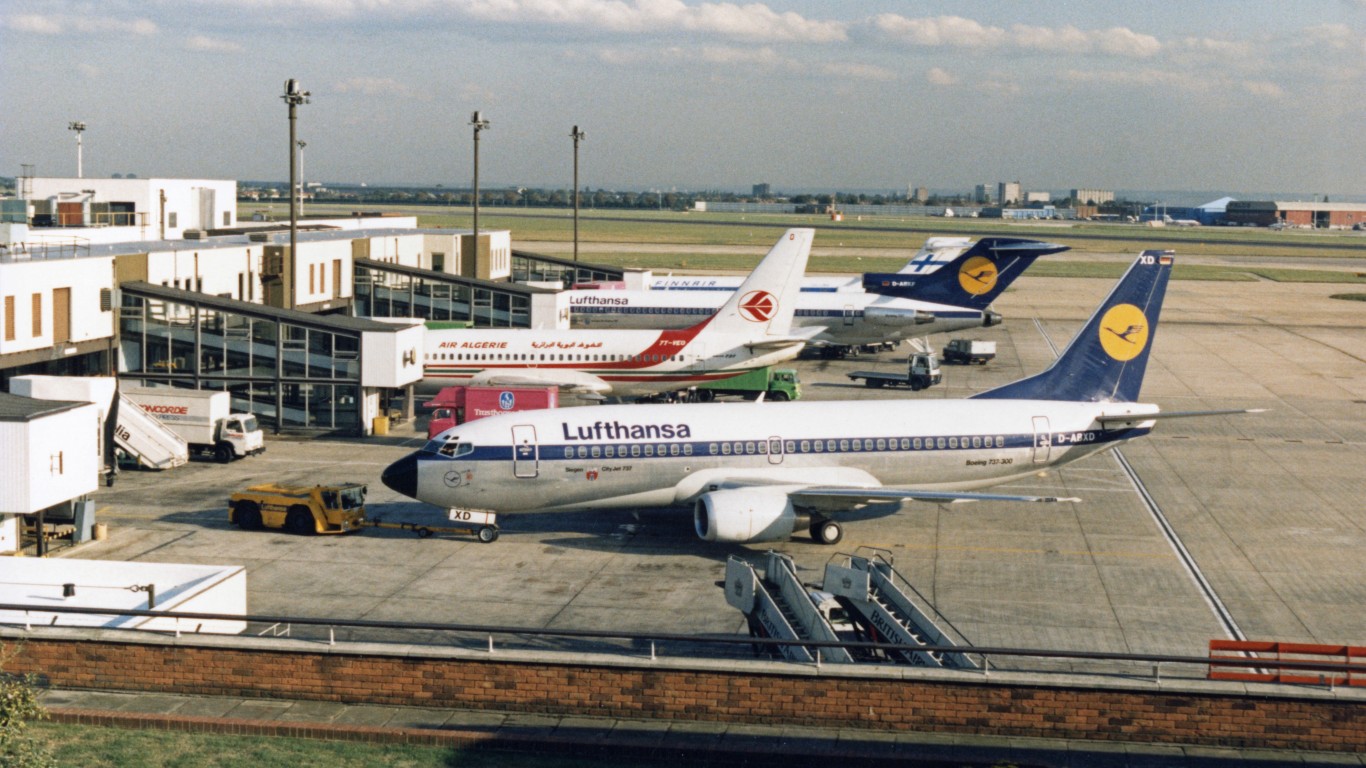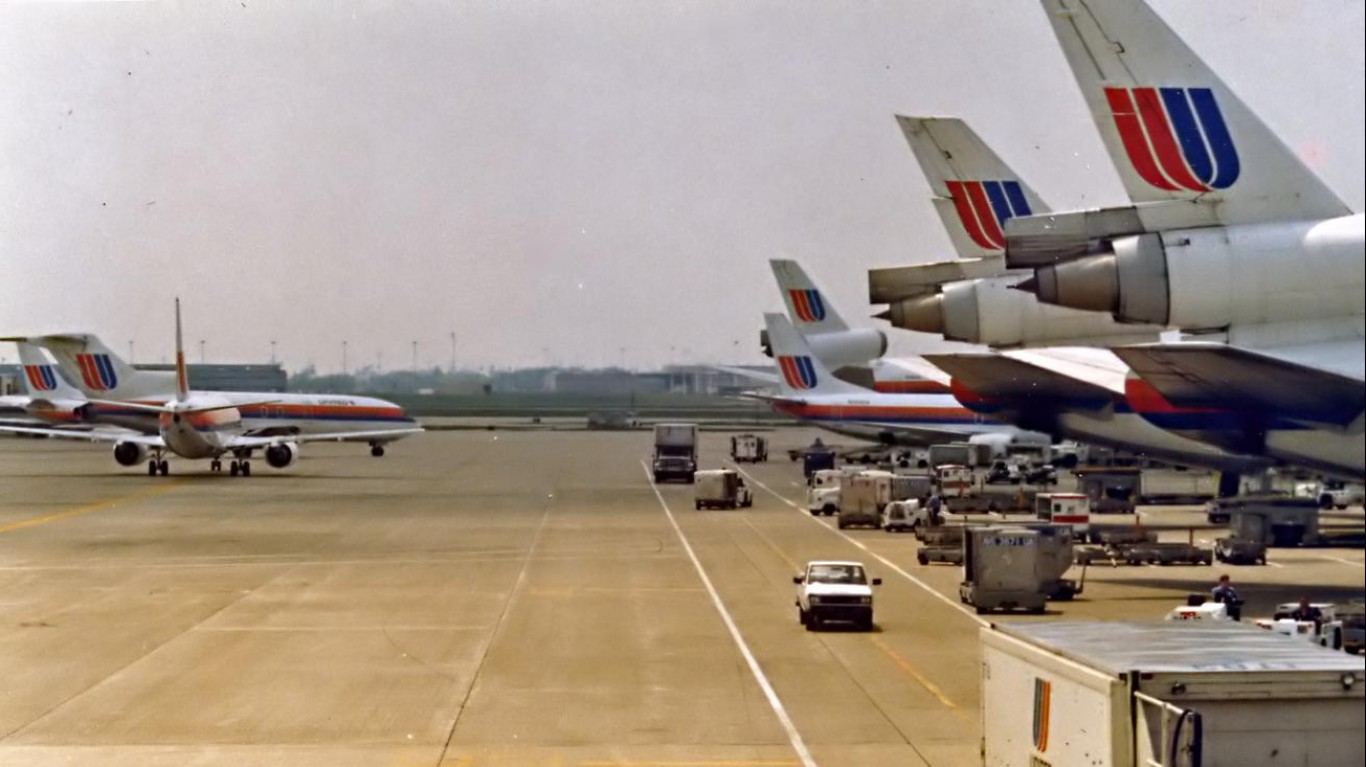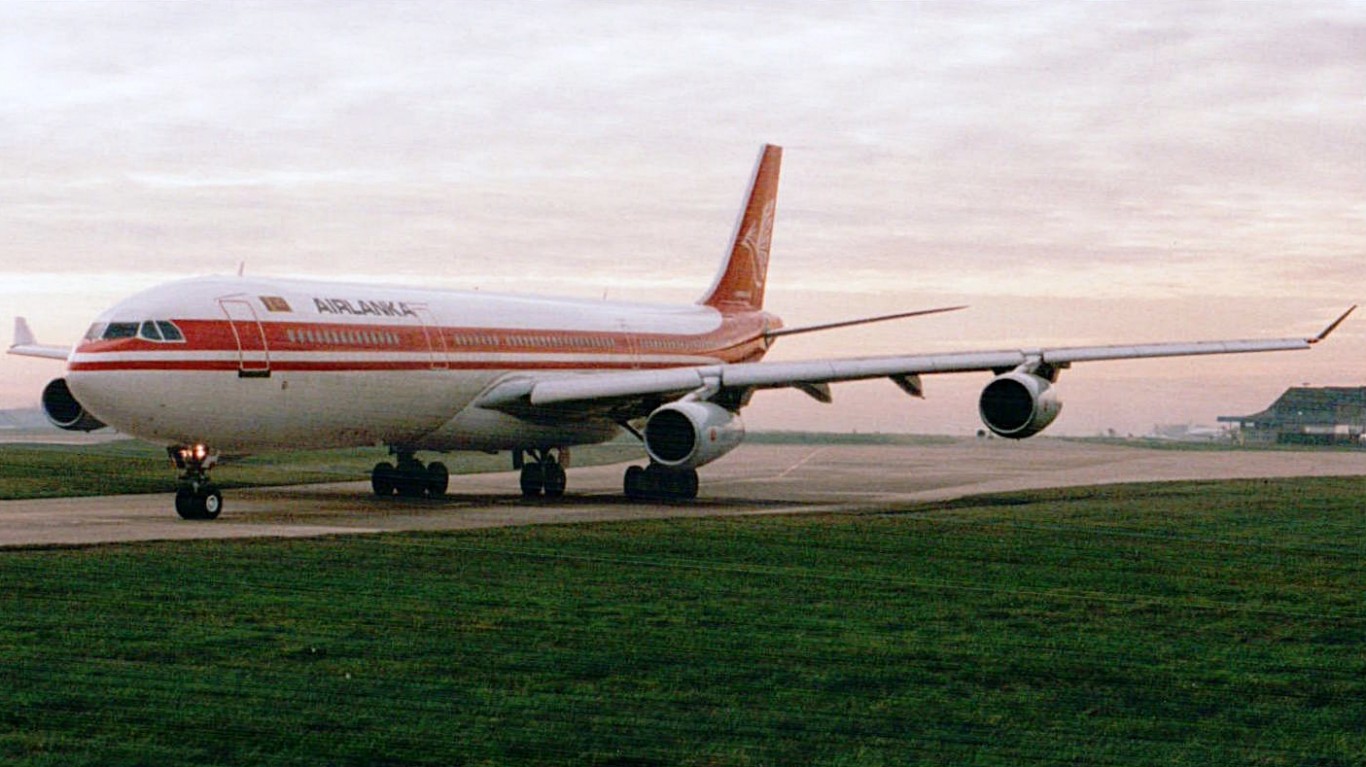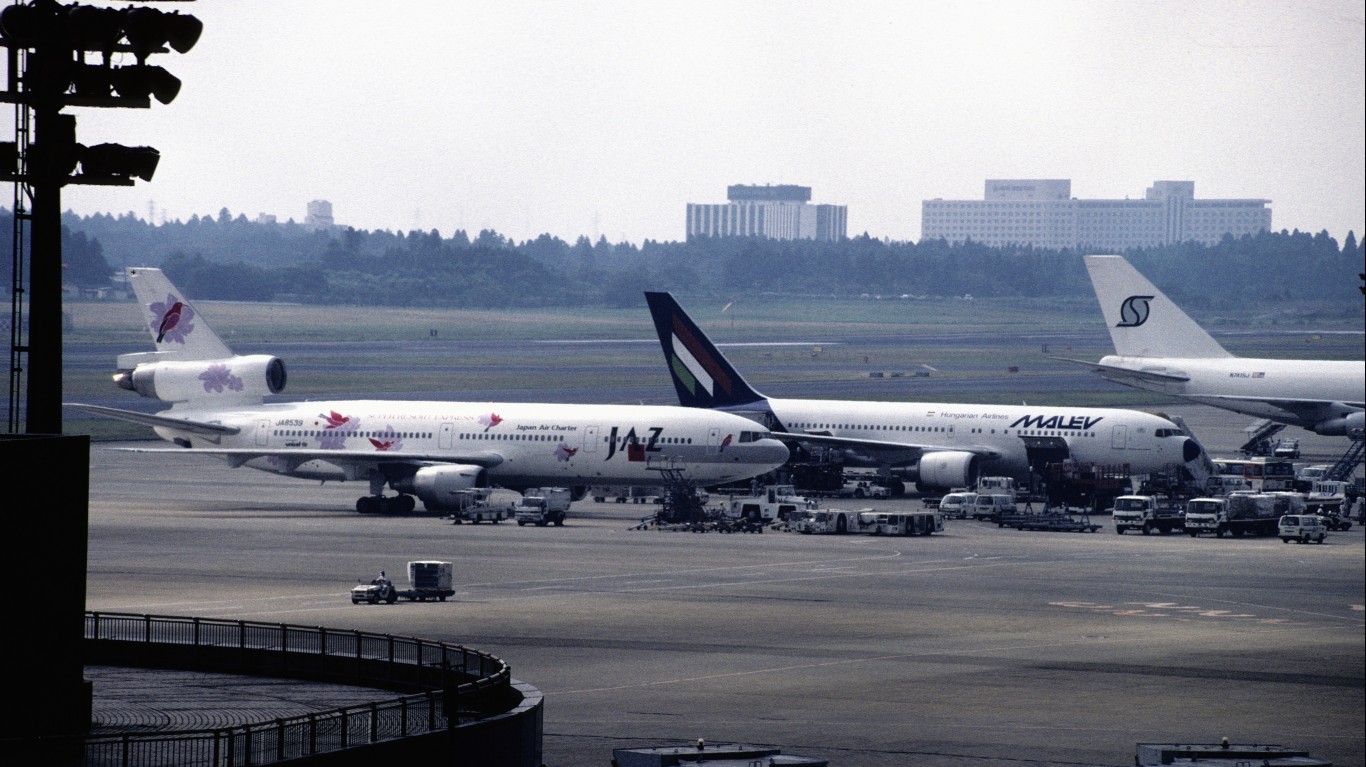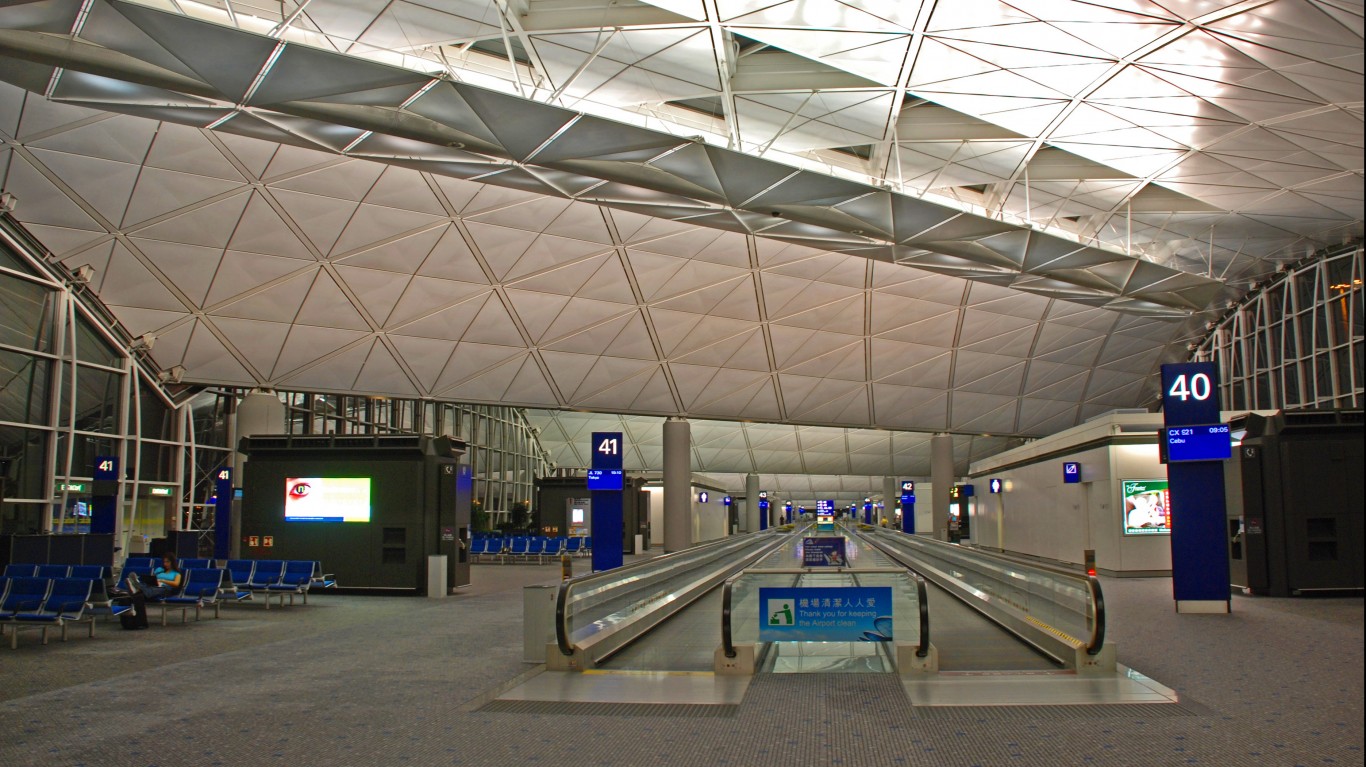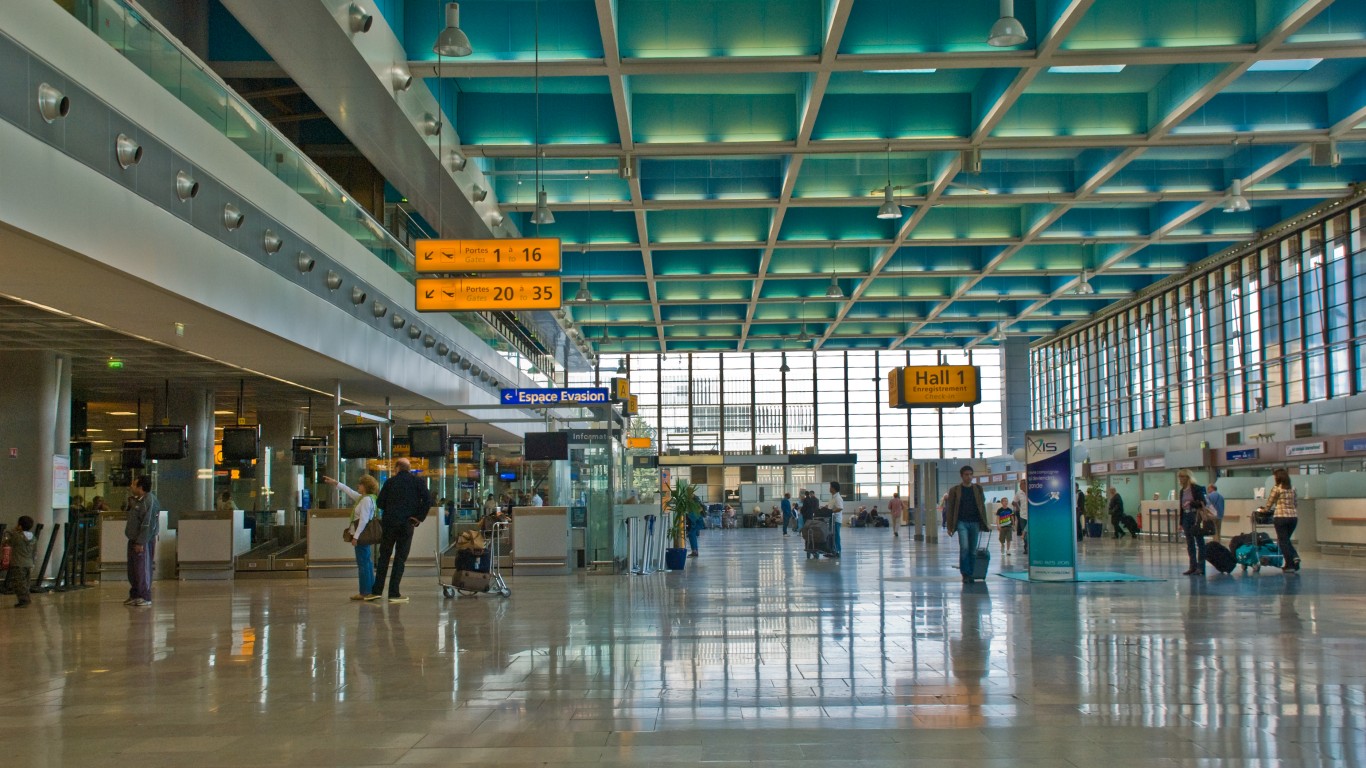
Over the 113 years since the first airplane passenger, Leon Delagrange, climbed aboard with French pilot Henri Farman, air travel has gone through drastic changes. Commercial aircraft have seen incredible technological developments. Many airlines have come and gone. And the procedures passengers go through, including the way they board jets, are almost nothing like they were back in the day.
But a few of the things airline customers have come to expect had their beginnings a century ago. The first flight attendant was aboard a zeppelin in 1912. The first onboard meal, a cold one, was served on a flight from London to Paris in 1919, according to Fortune magazine. Aeromarine Airways showed the first in-flight movie, a film called “Howdy Chicago,” in 1921 as its amphibious airplane flew passengers over Chicago, CNN said.
Passengers didn’t get their first frequent-flyer program until 1979, but they were allowed to smoke on domestic flights until 1990. (This is the world’s busiest air route.)
Check out the list of changes in air travel below.
Click here to see 50 ways air travel has changed over the last 100 years
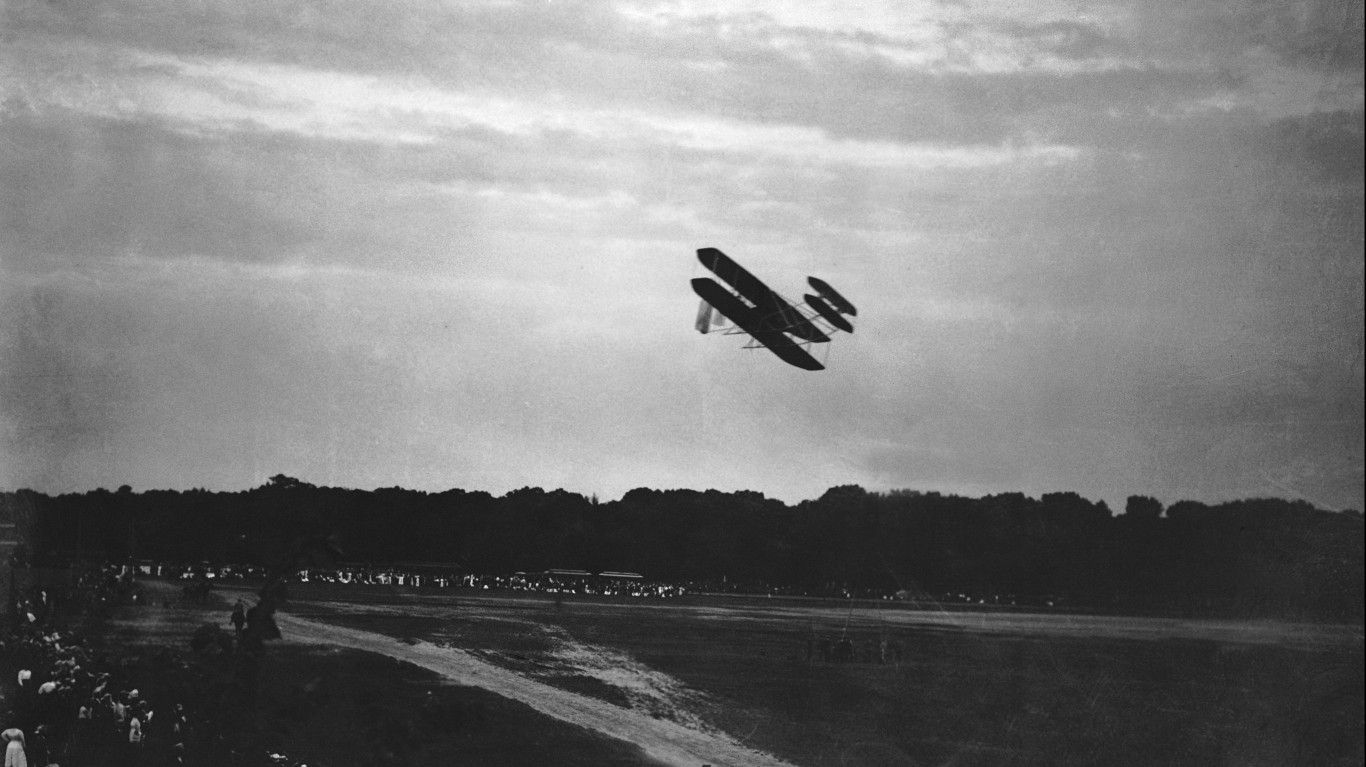
1908: First airplane passenger
[in-text-ad]
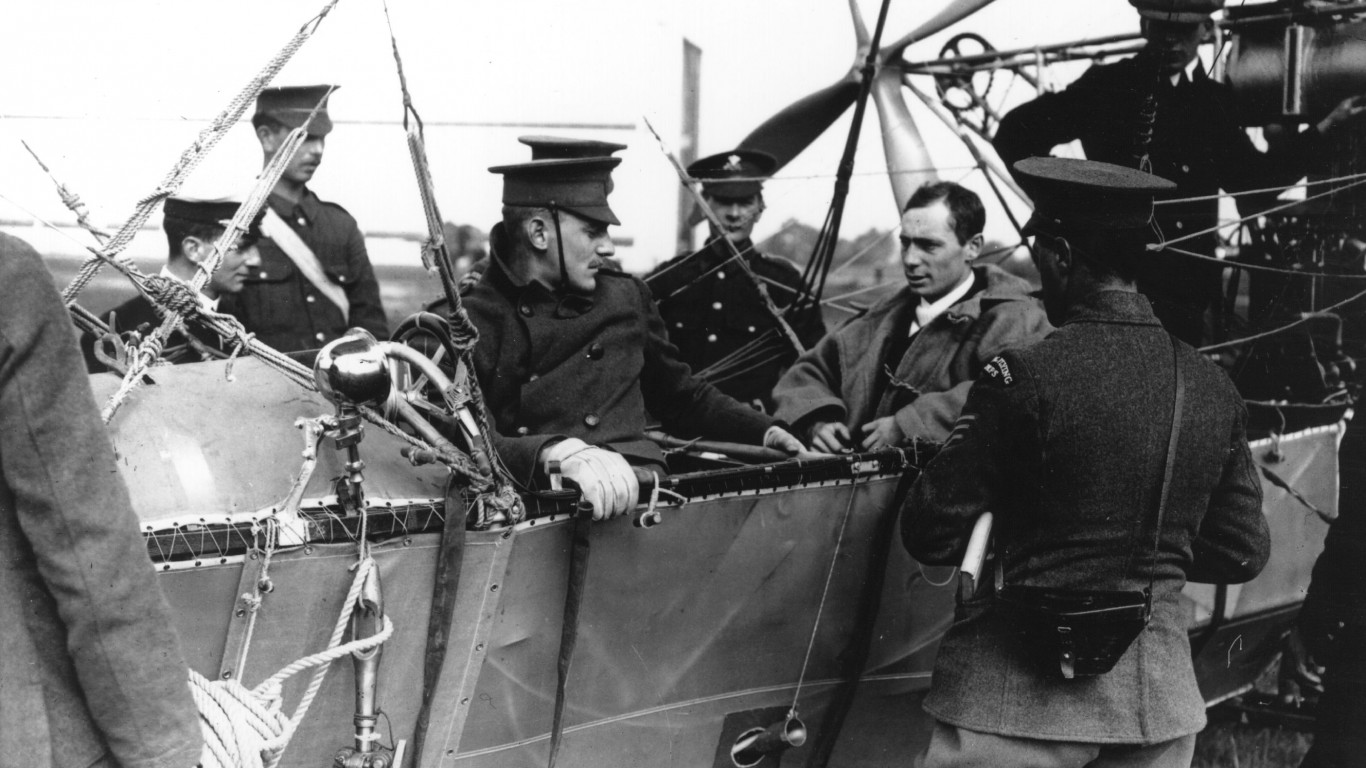
1912: First flight attendant (on a zeppelin)
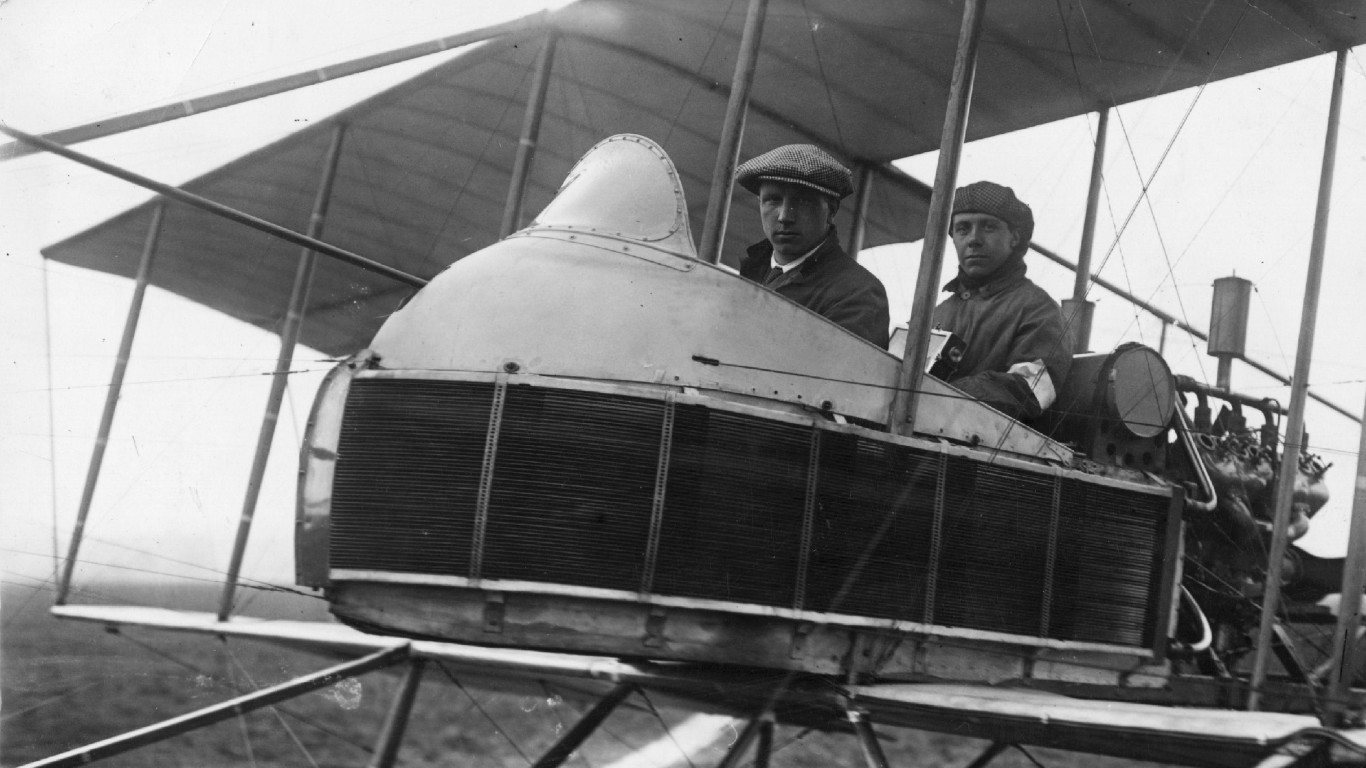
1914: First scheduled passenger service
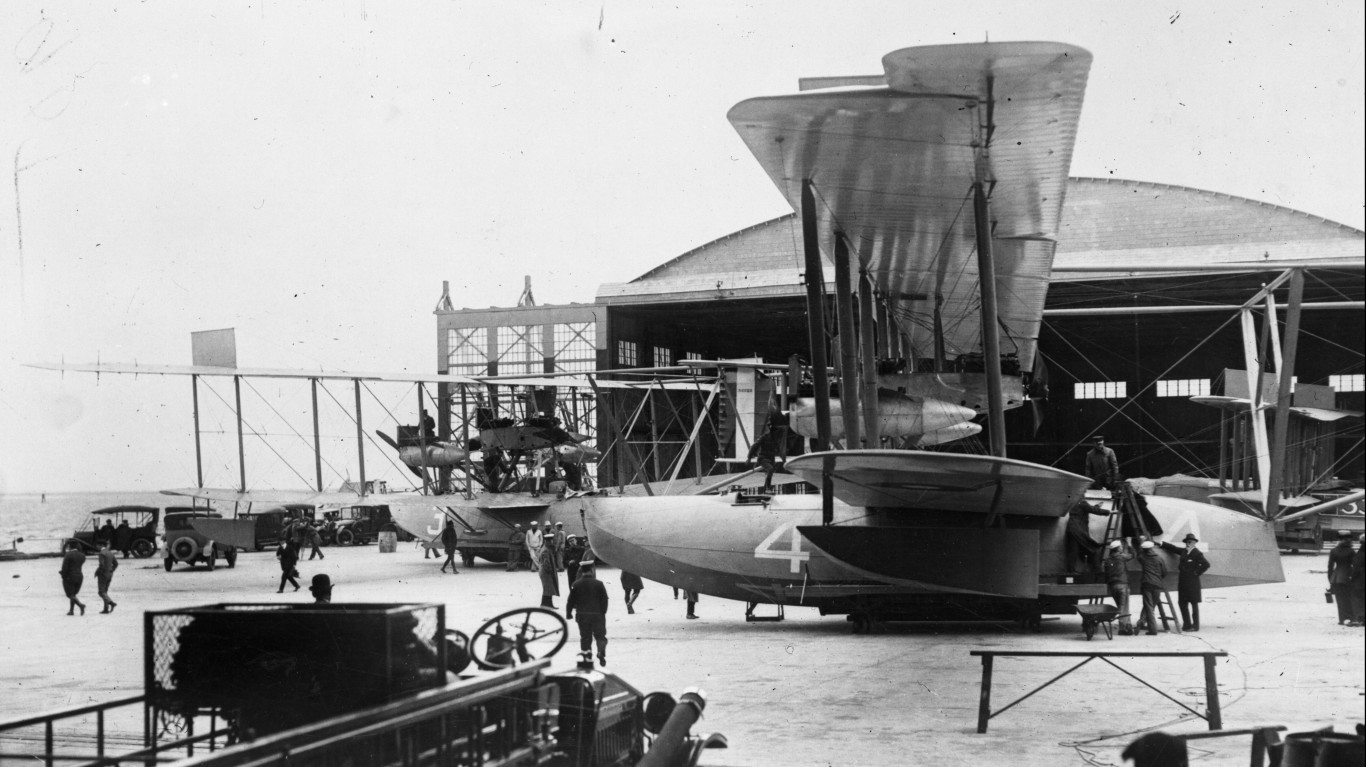
1919: First on-board (cold) meal served
[in-text-ad-2]
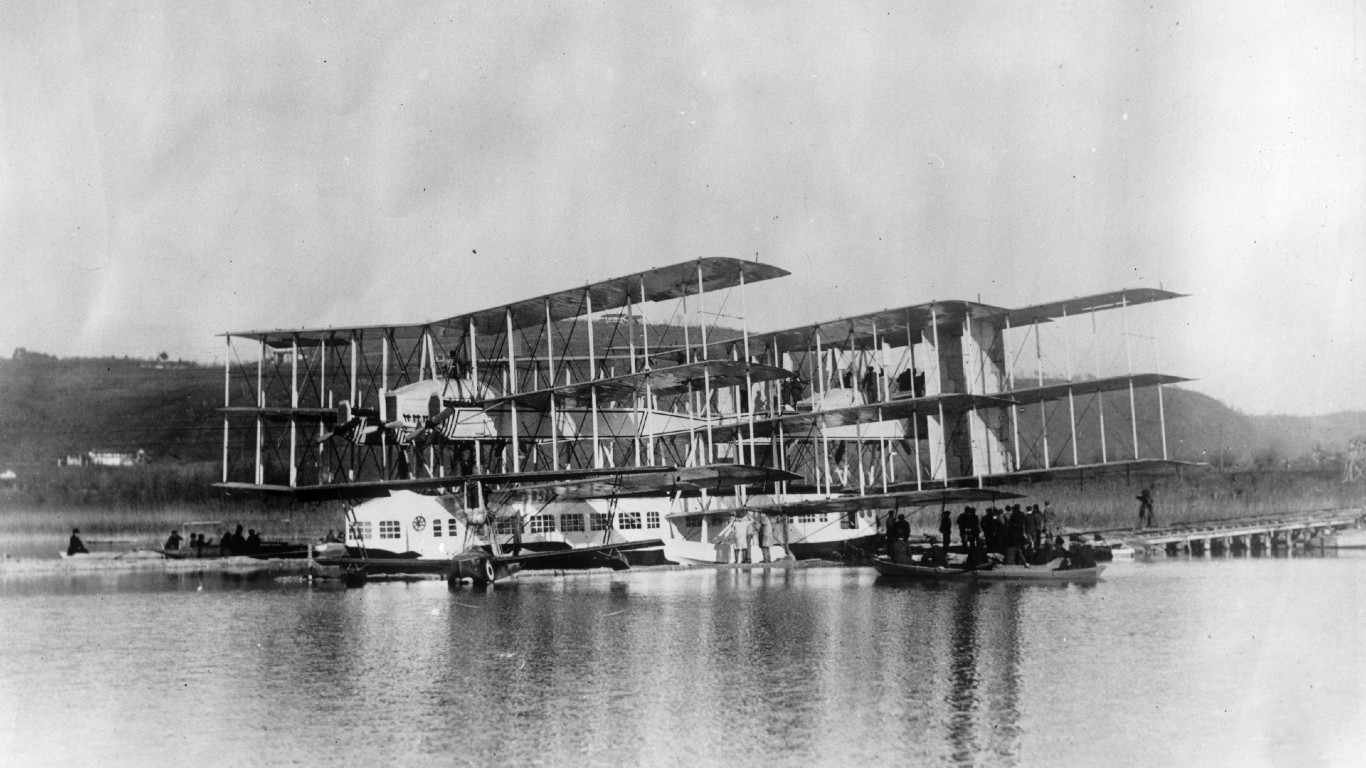
1921: First in-flight film
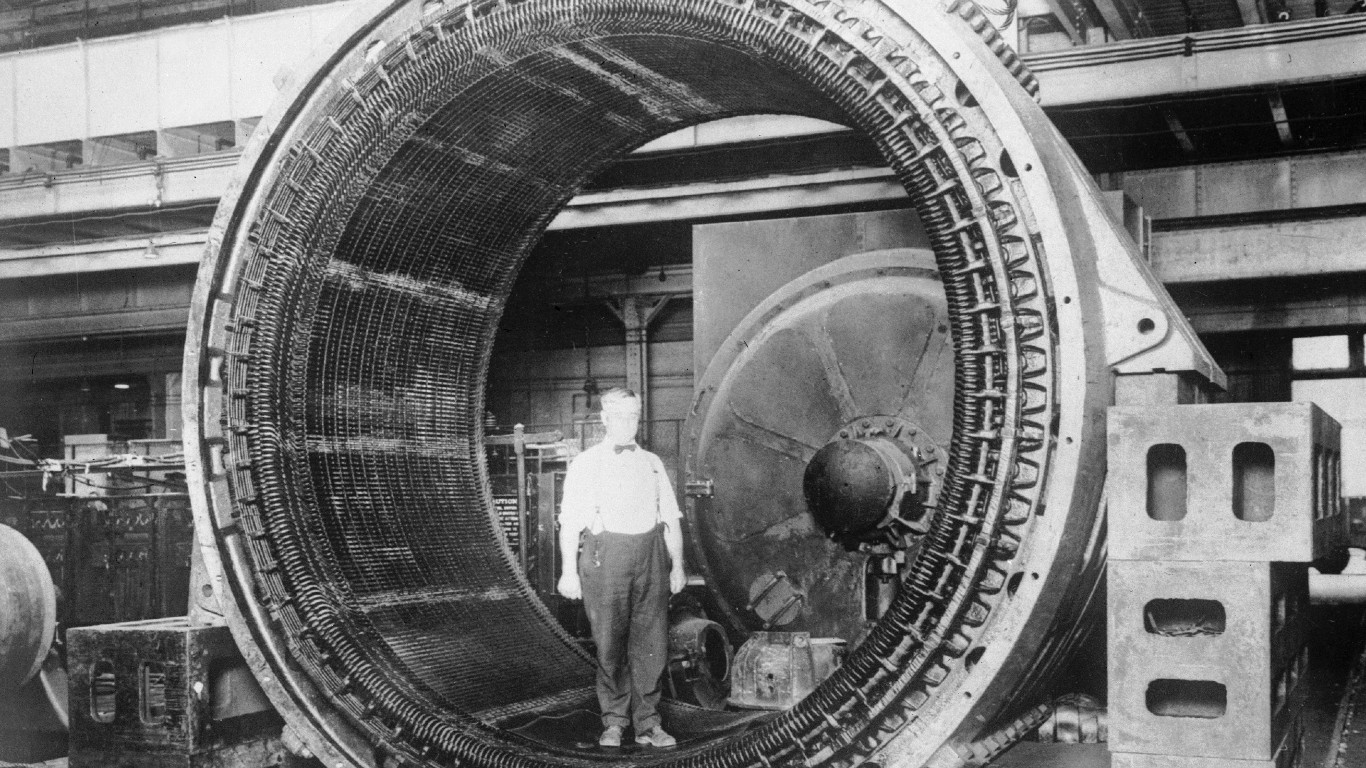
1922: First airplane flight attendant
[in-text-ad]
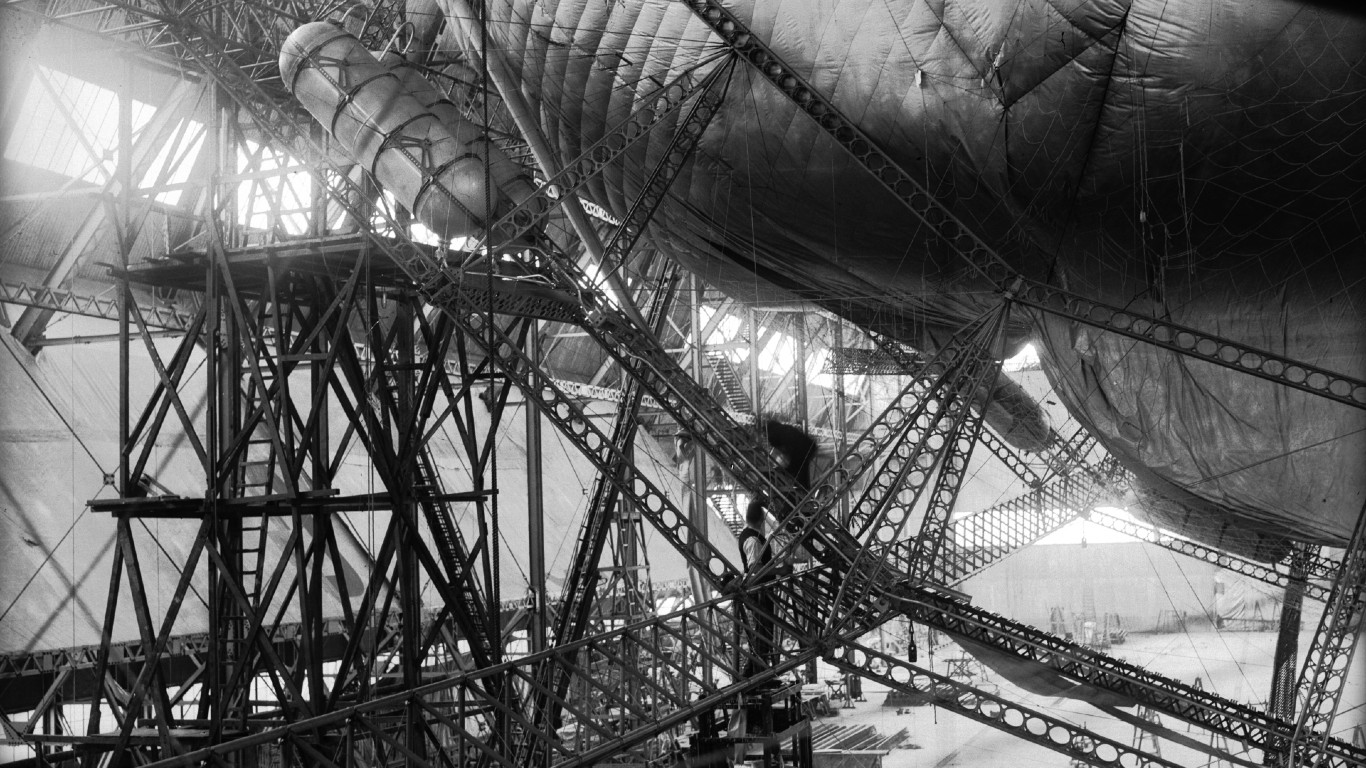
1928: First hot in-flight meal served
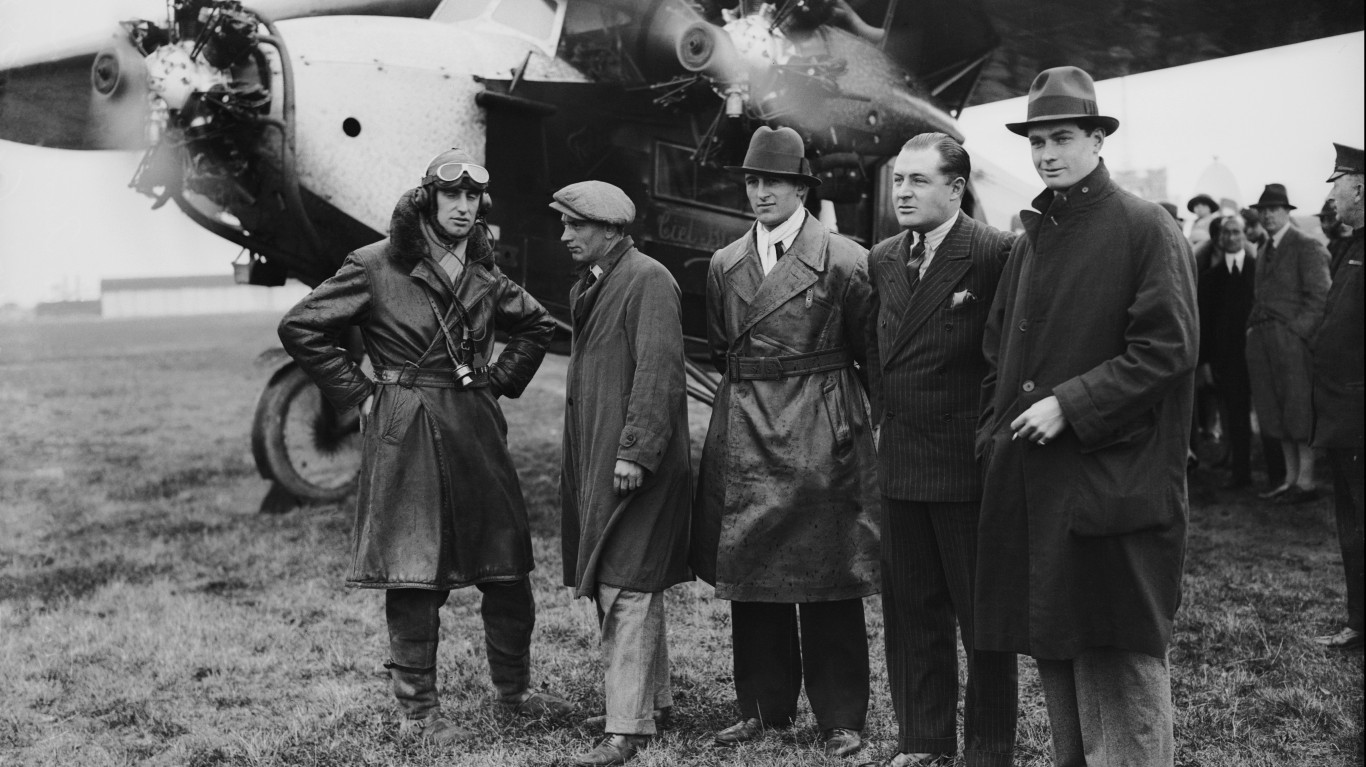
1928: First female airline co-pilot (volunteer)
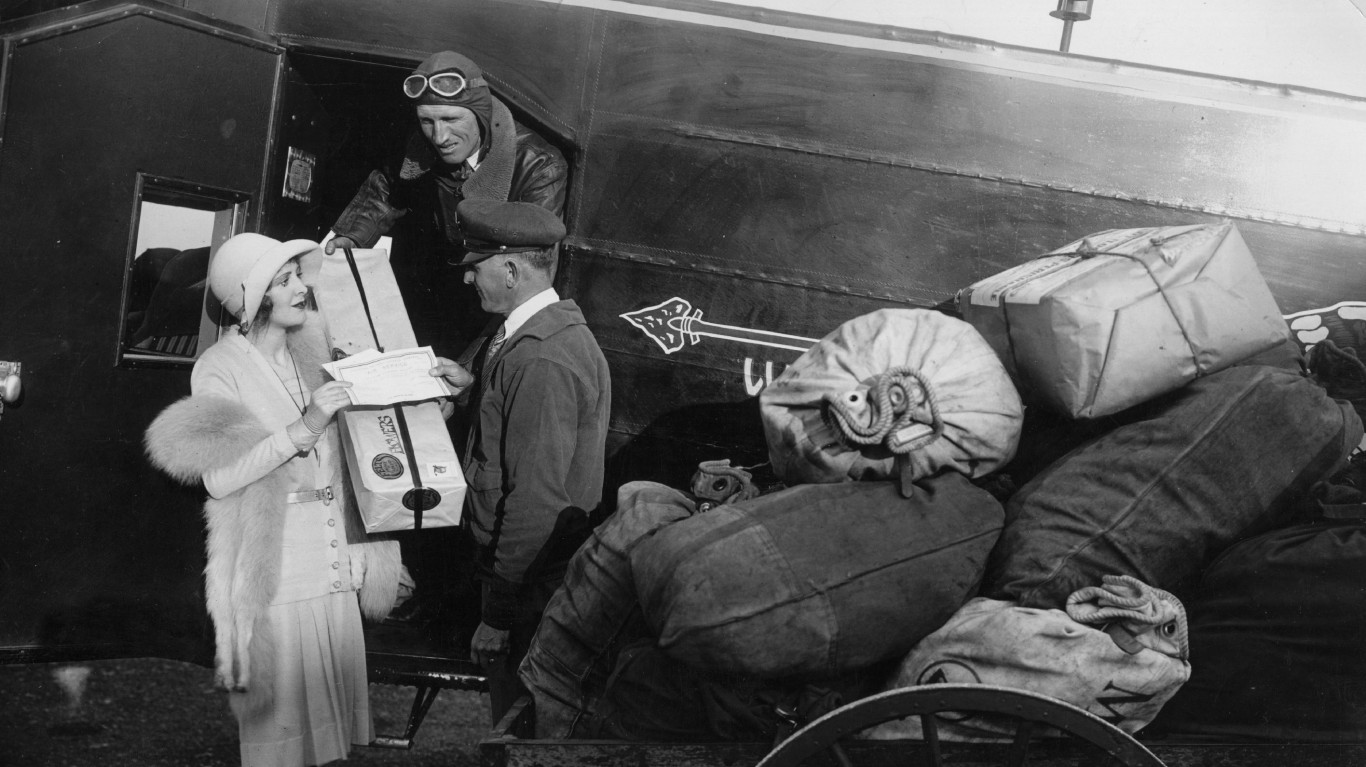
1930: First female flight attendant (“stewardess”)
[in-text-ad-2]
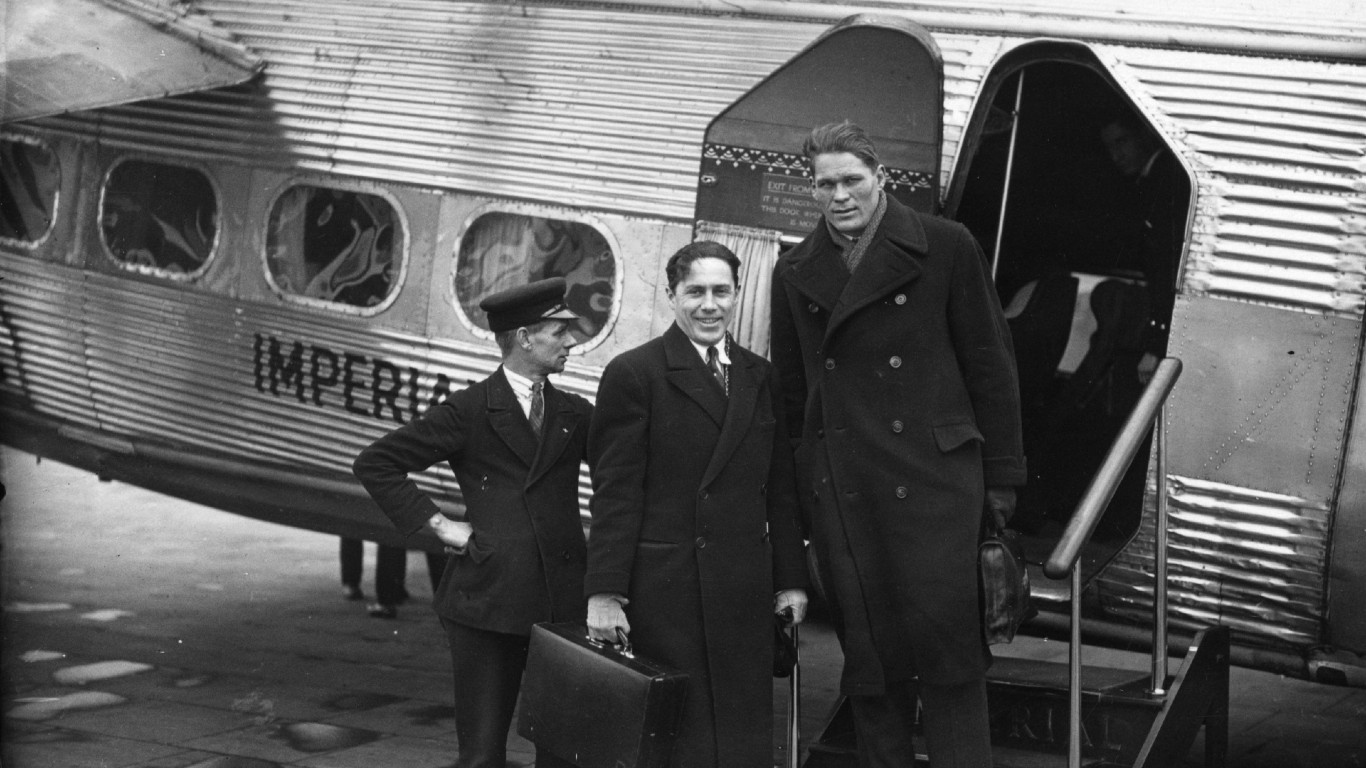
1933: First modern airliner built
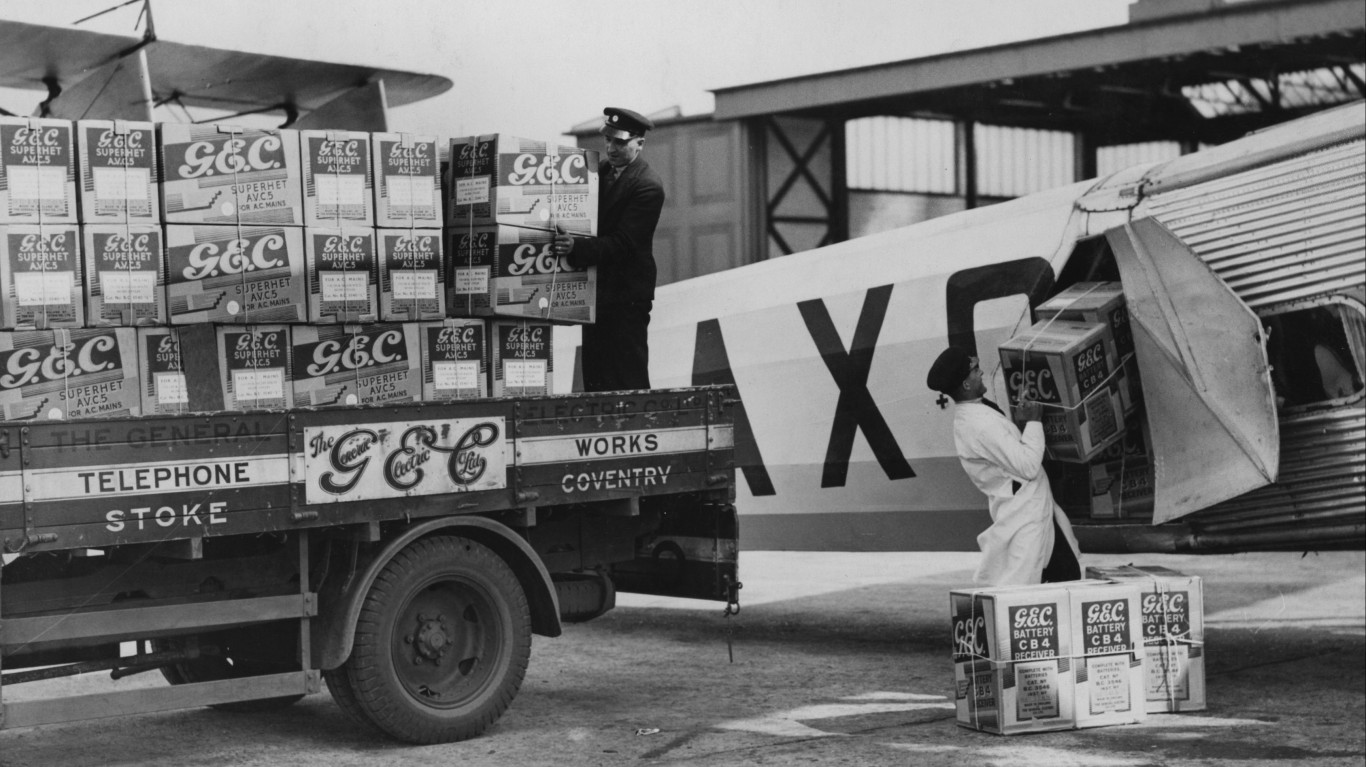
1934: First female airline co-pilot (official)
[in-text-ad]

1935: First air traffic control tower
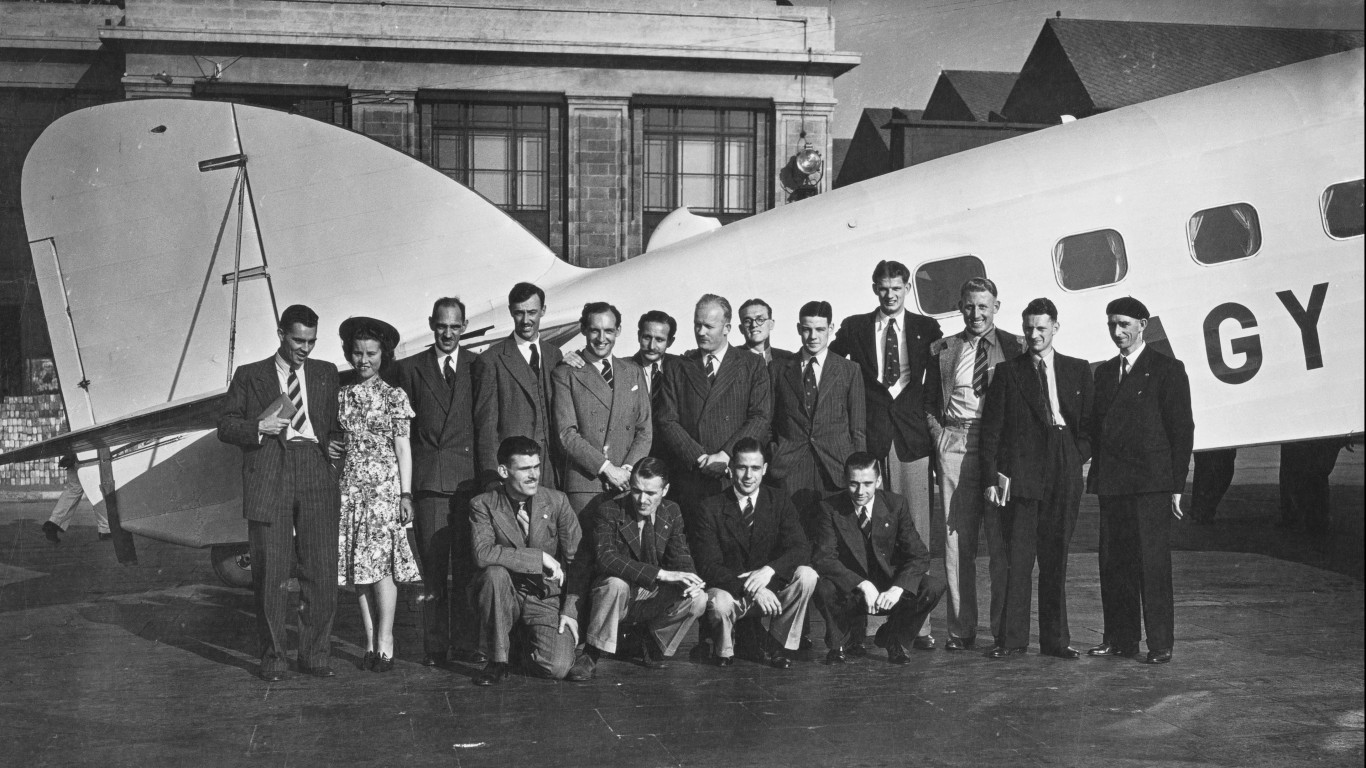
1939: First airport lounge
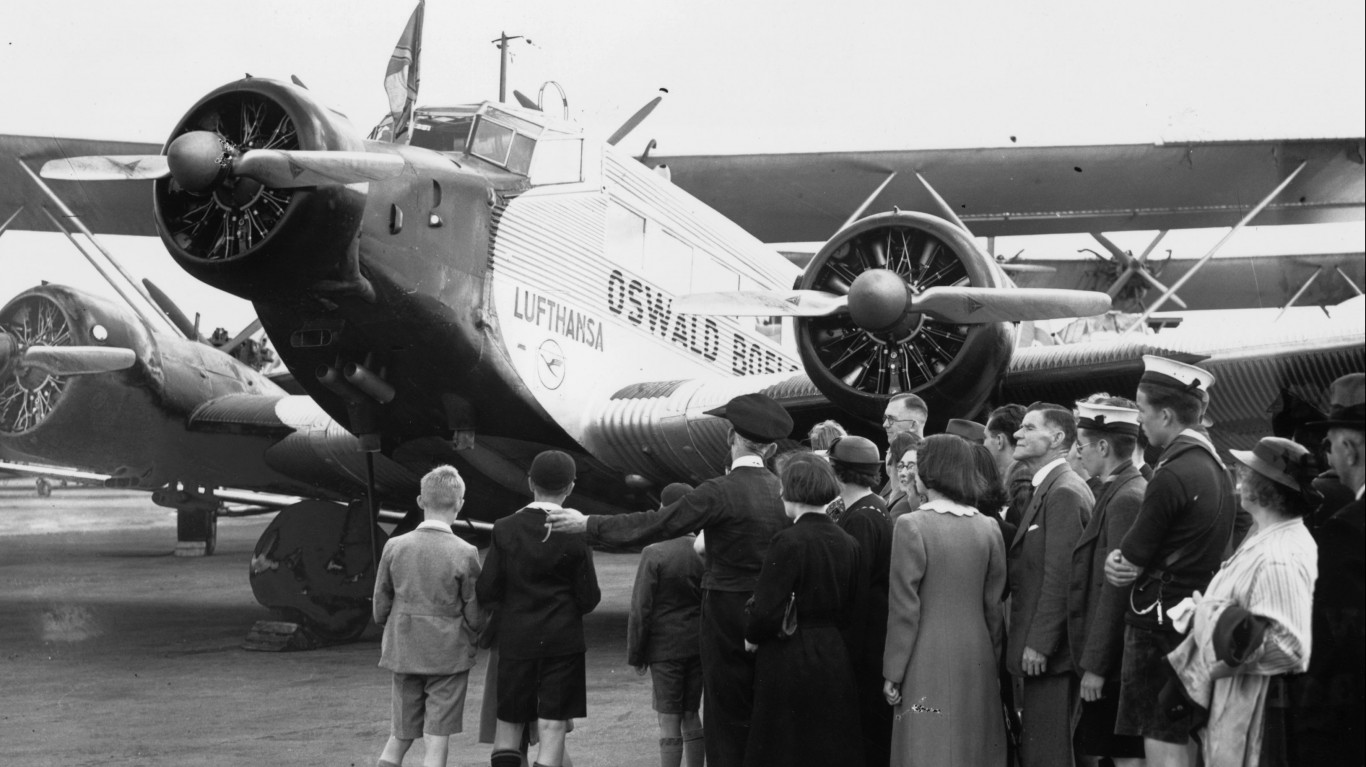
1939: First nonstop trans-Atlantic flight
[in-text-ad-2]
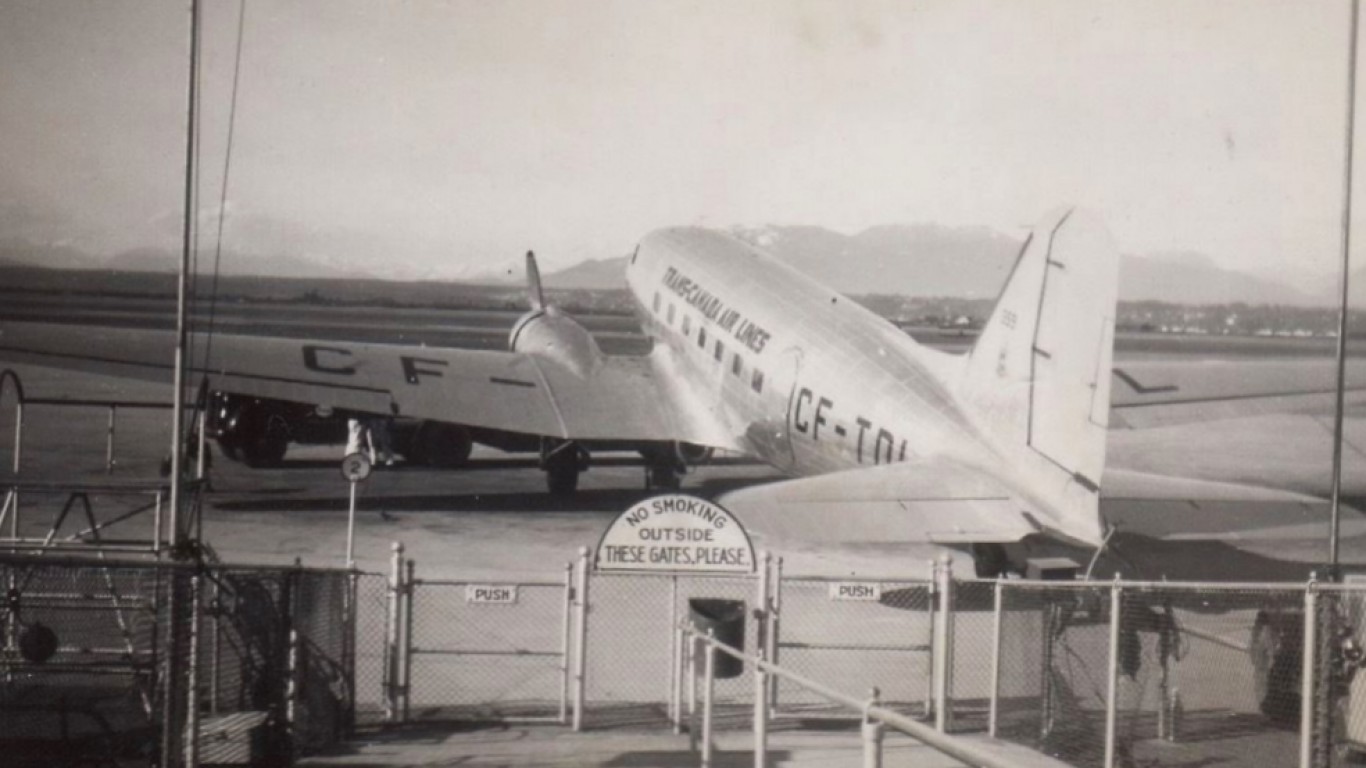
1940: First pressured cabin
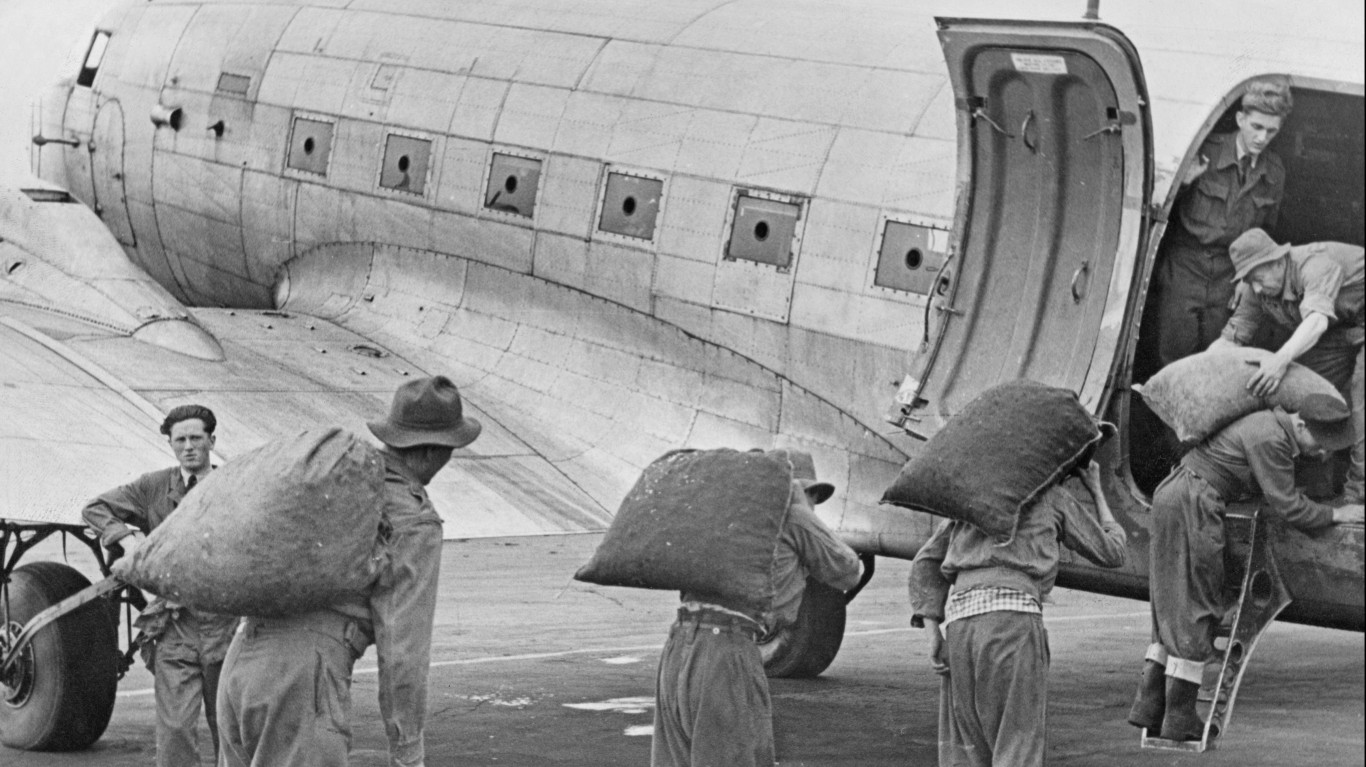
1948: Coach fares introduced
[in-text-ad]
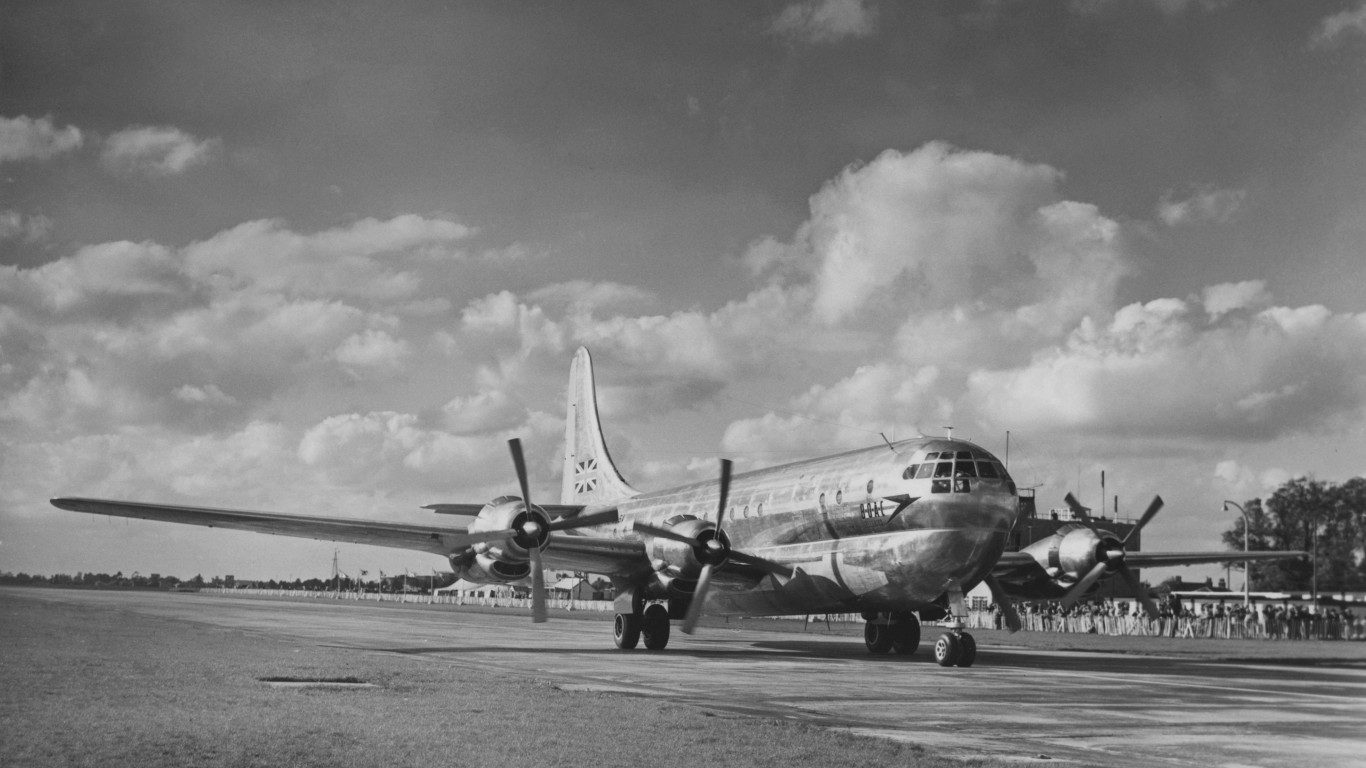
1949: First domestic “no frills” airline
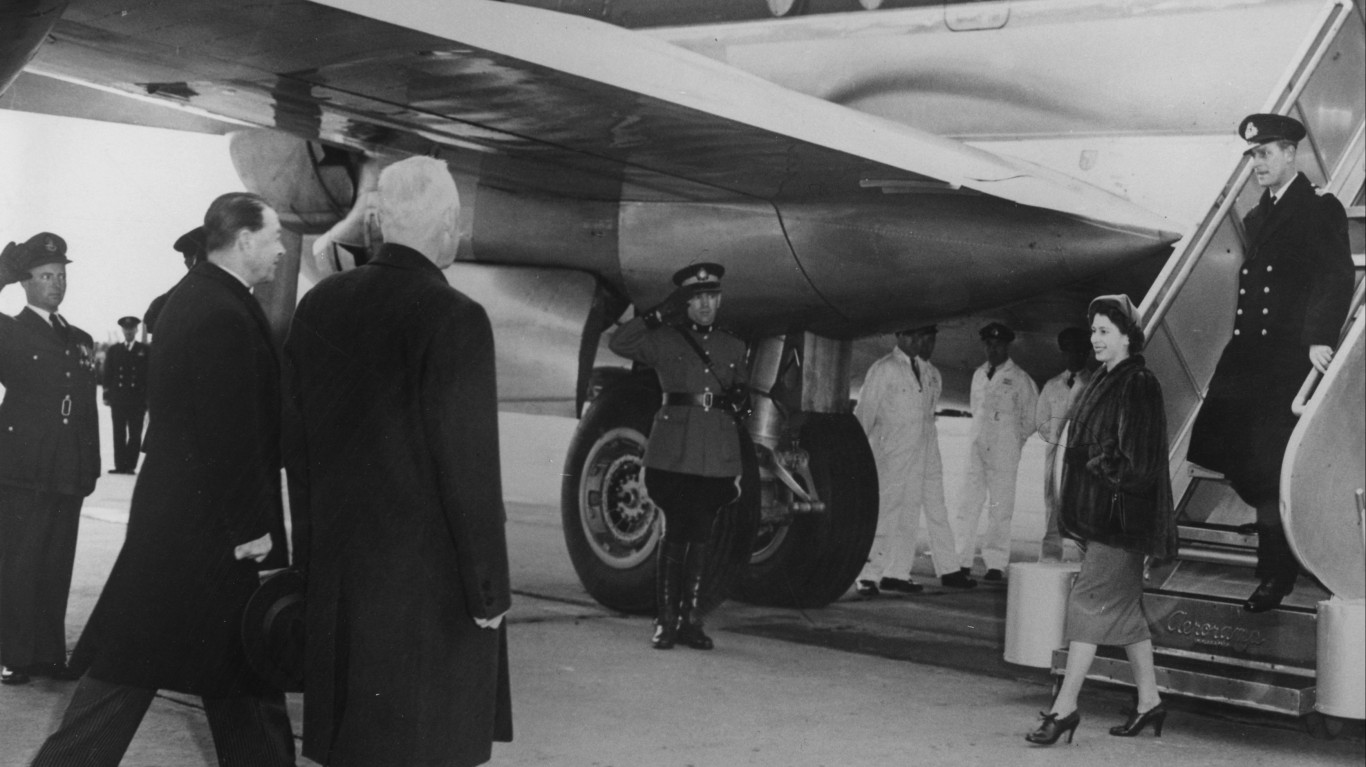
1951: First commercial jet airliner
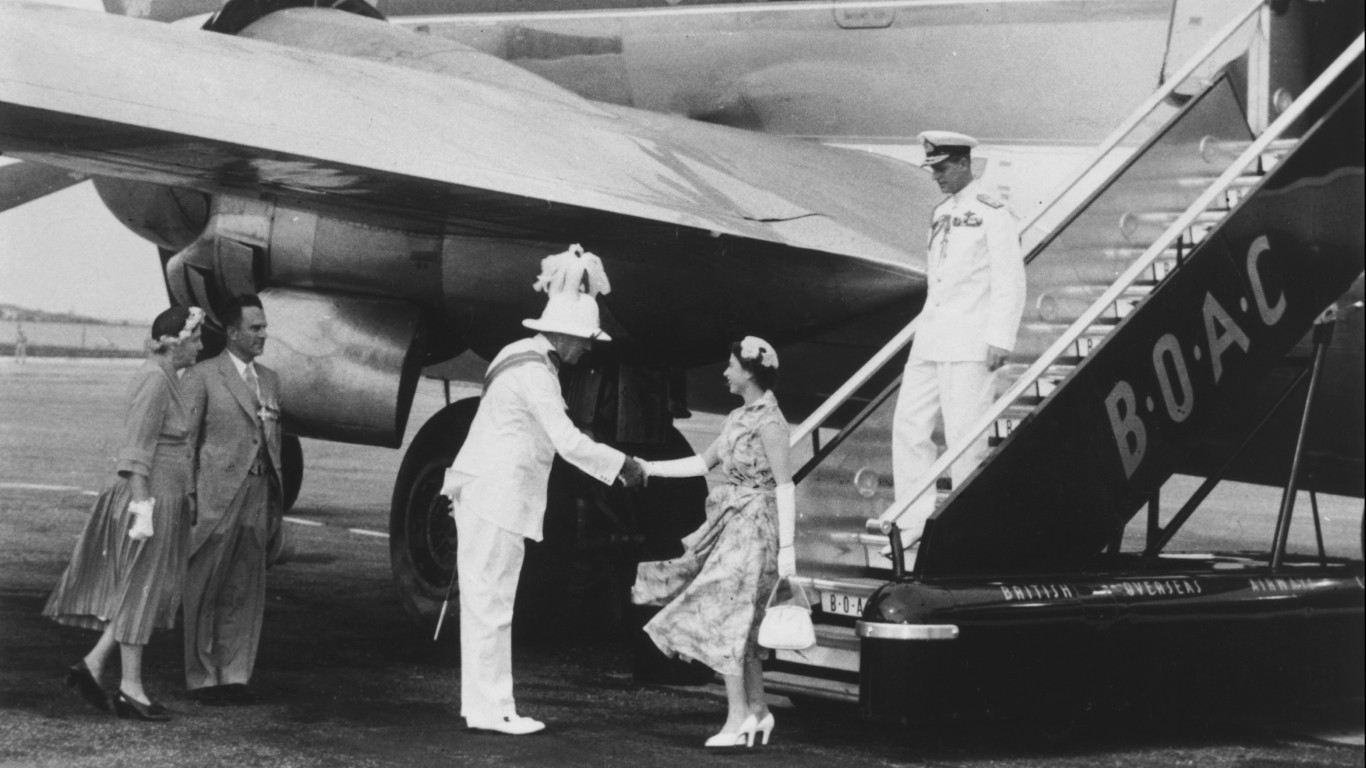
1953: First nonstop transcontinental flight
[in-text-ad-2]
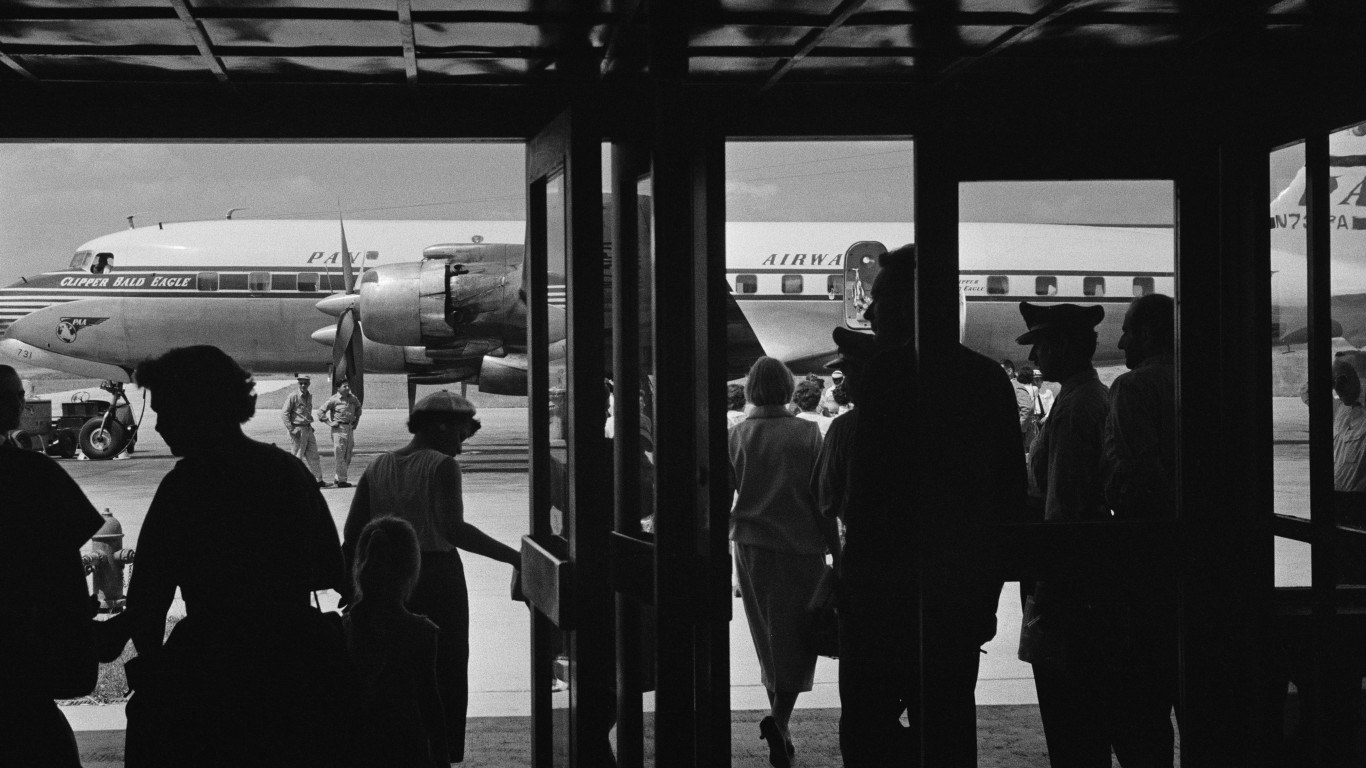
1958: First covered airport jet bridge
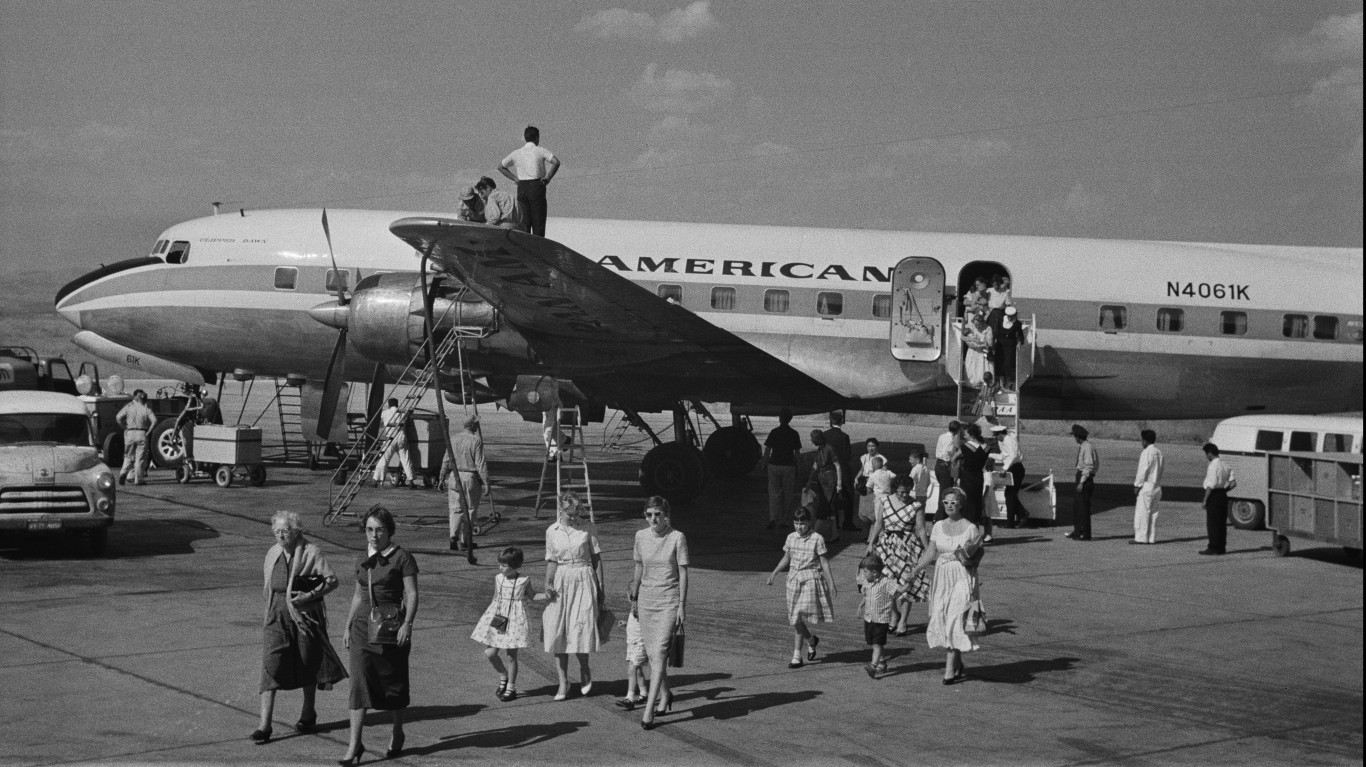
1958: First Black flight attendant
[in-text-ad]
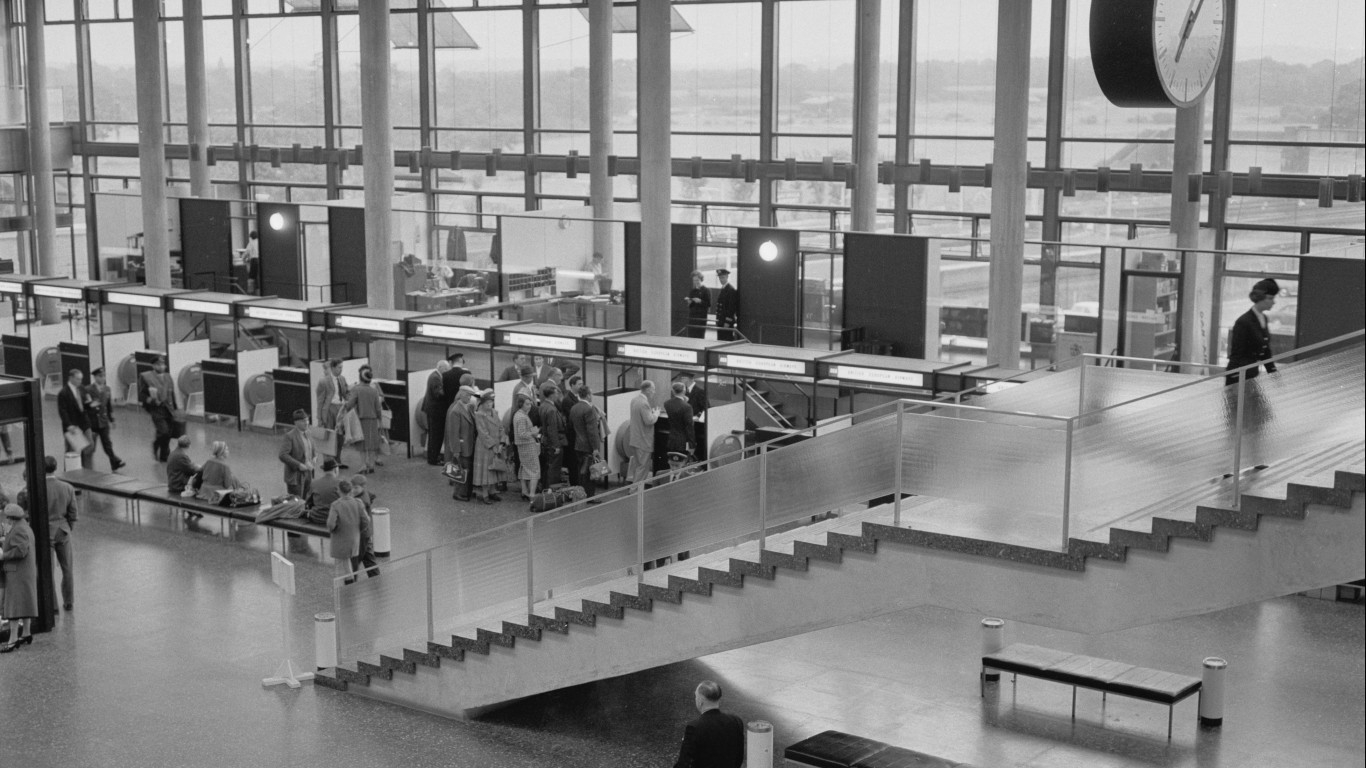
1960: First automated reservation system
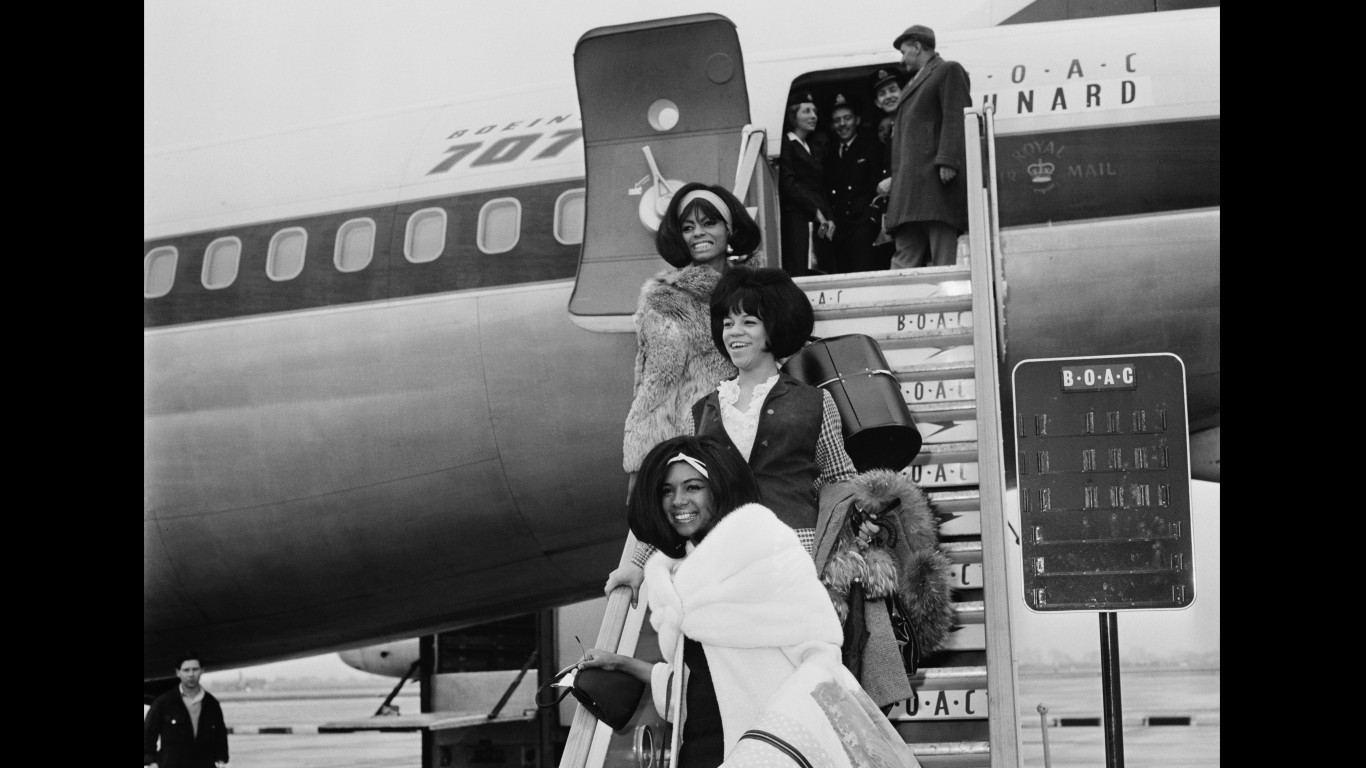
1965: Overlapping nationwide radar system completed
1965: First Black commercial airline pilot
[in-text-ad-2]

1966: First trans-Atlantic “no frills” airline
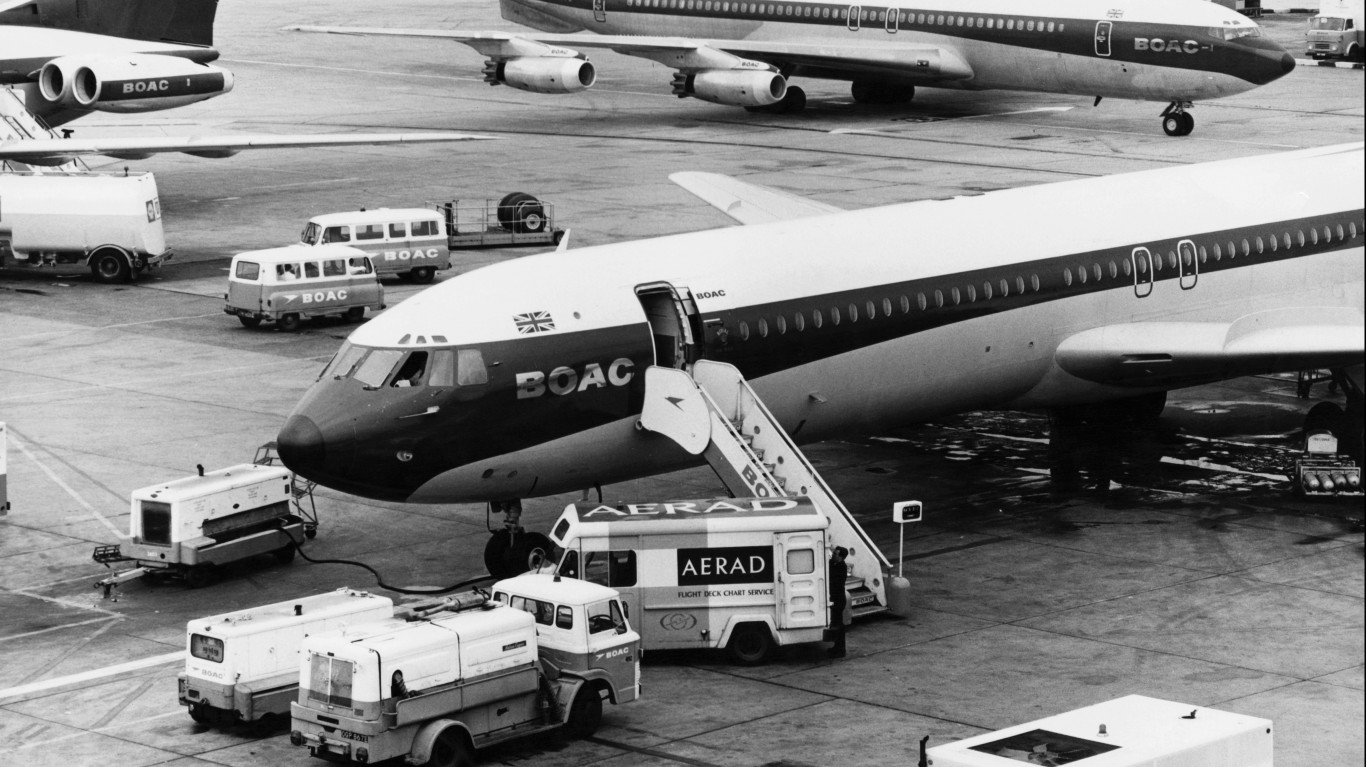
1968: Mandatory flight attendant retirement age lifted
[in-text-ad]
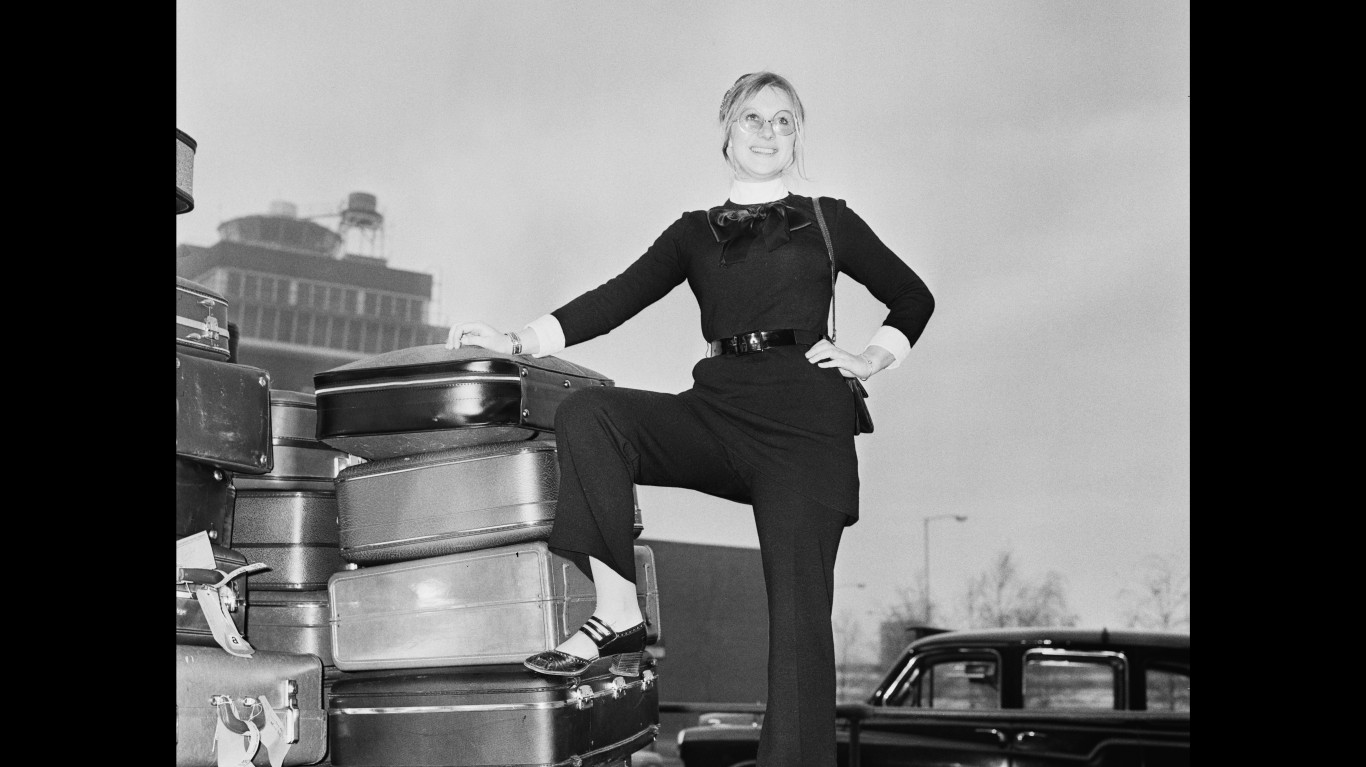
1969: Wide-body jet introduced
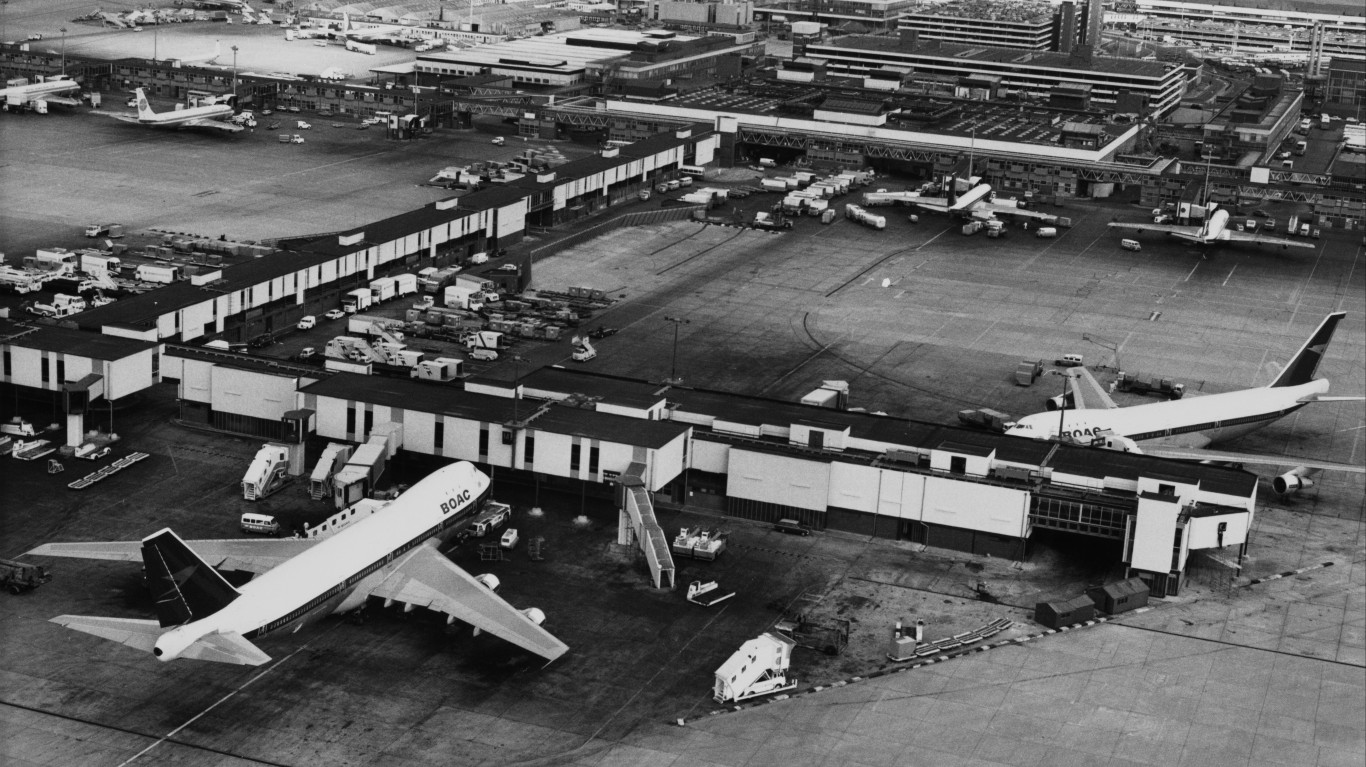
1972: Passenger screening begins
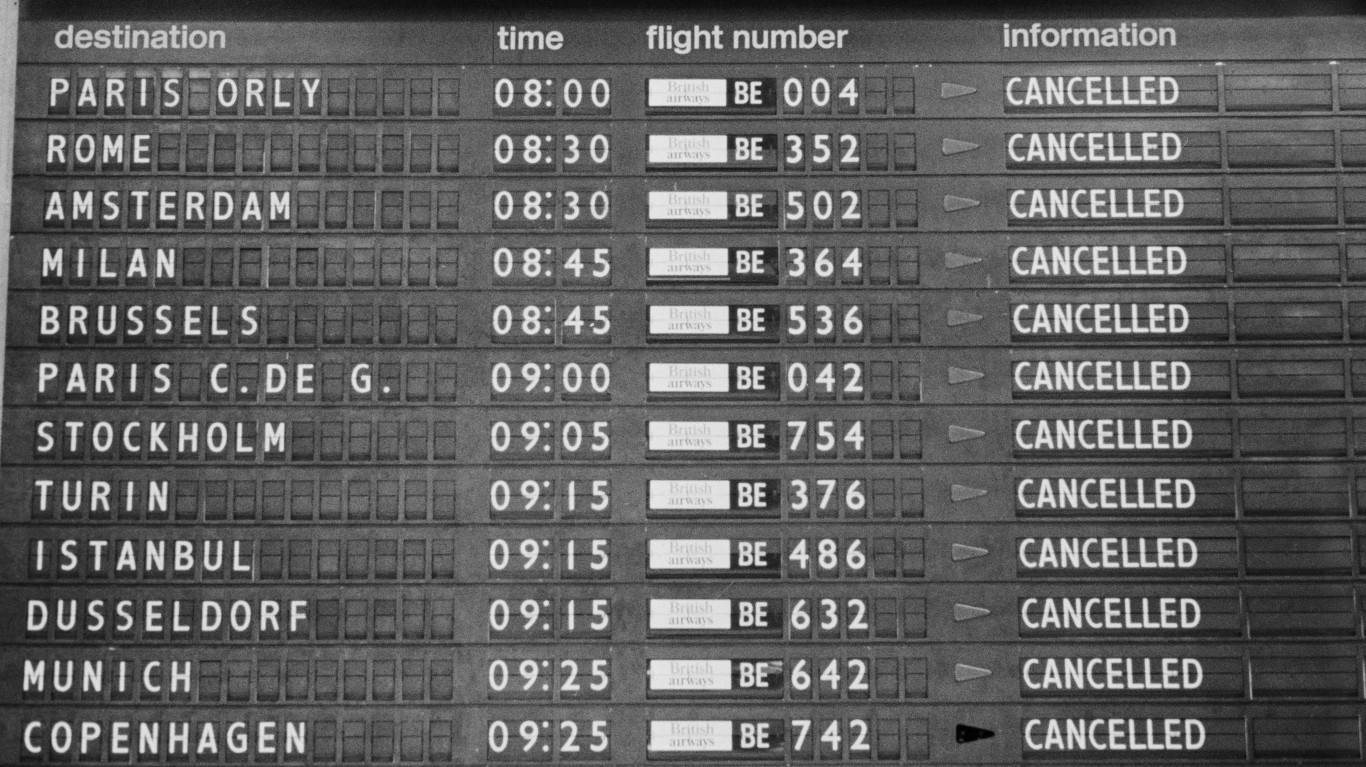
1975: First in-flight video games
[in-text-ad-2]
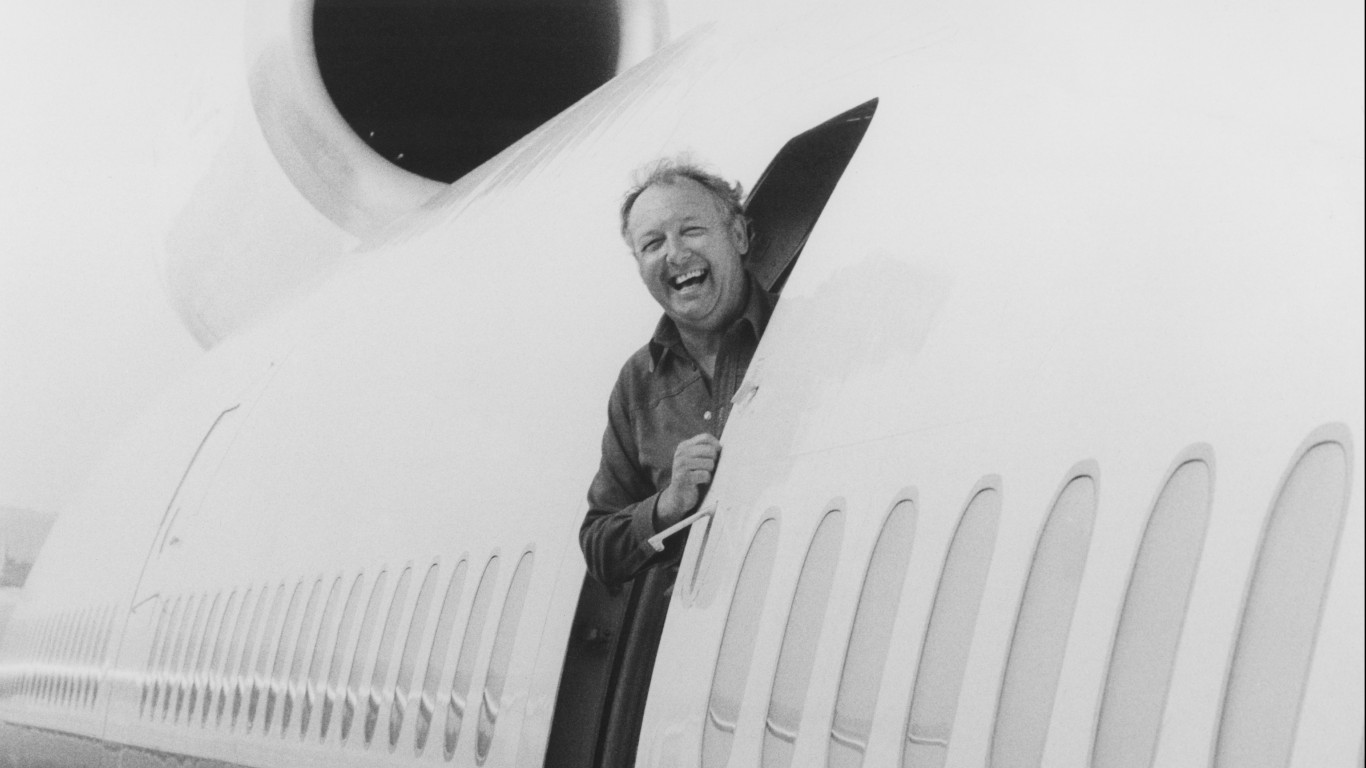
1976: First female airline captain

1978: Airline industry deregulated
[in-text-ad]
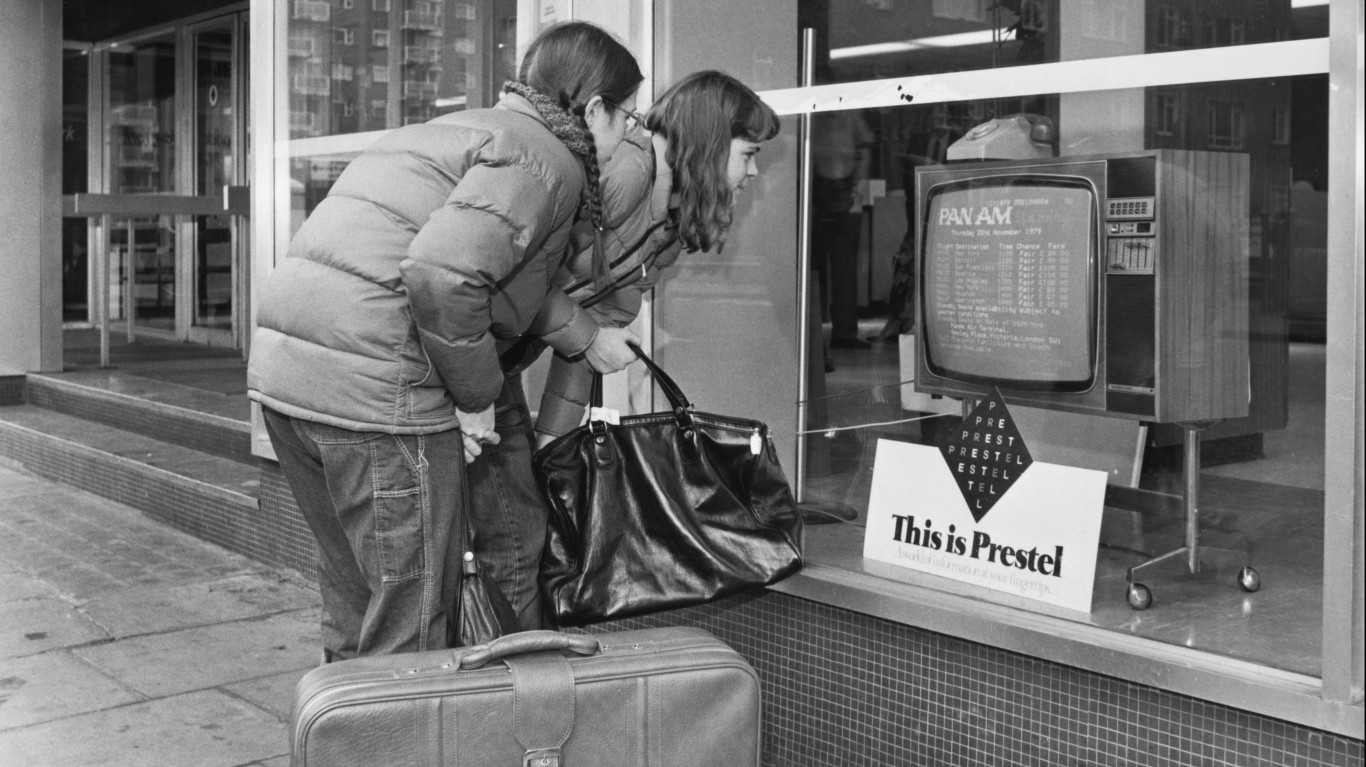
1979: First frequent-flyer program
1988: First seat-back video screens
1990: Smoking banned on all domestic flights
[in-text-ad-2]
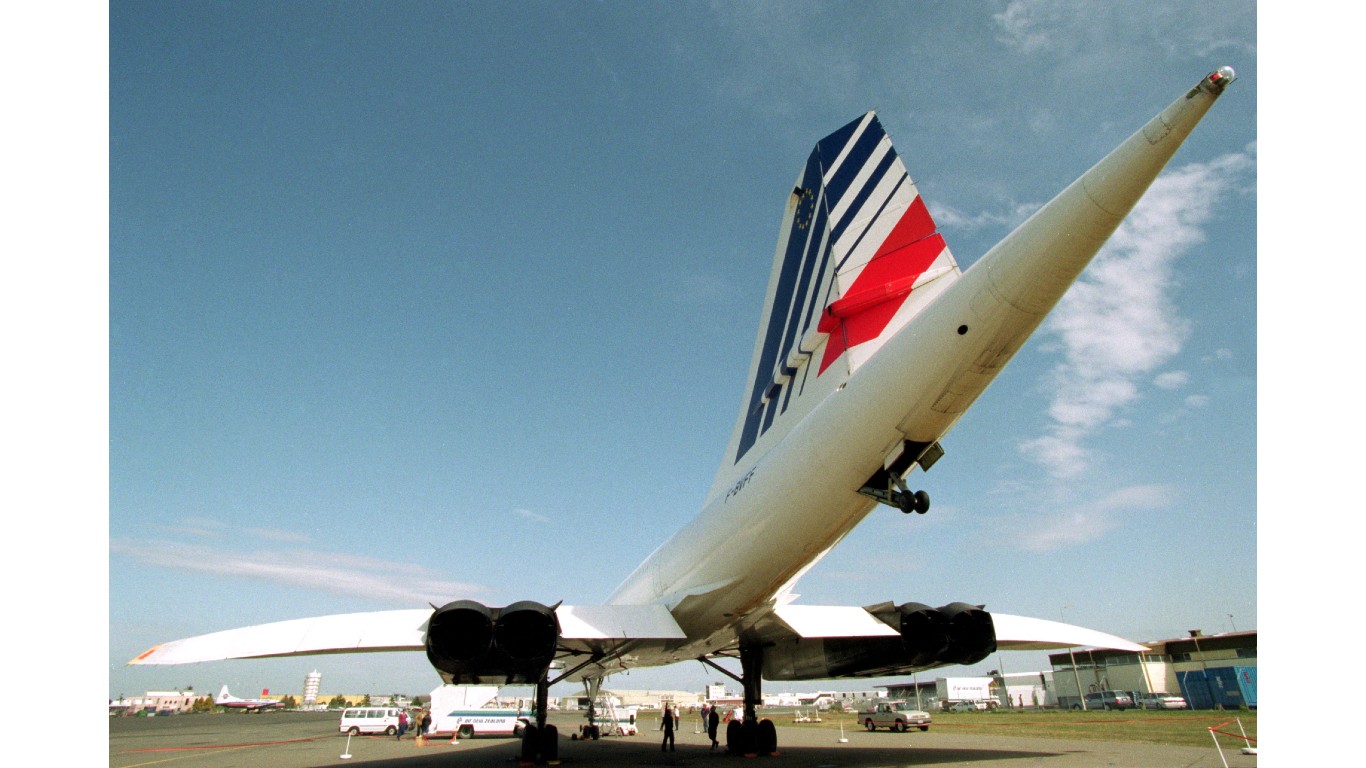
1994: First e-ticket issued
[in-text-ad]
1996: First independent flight reservation service
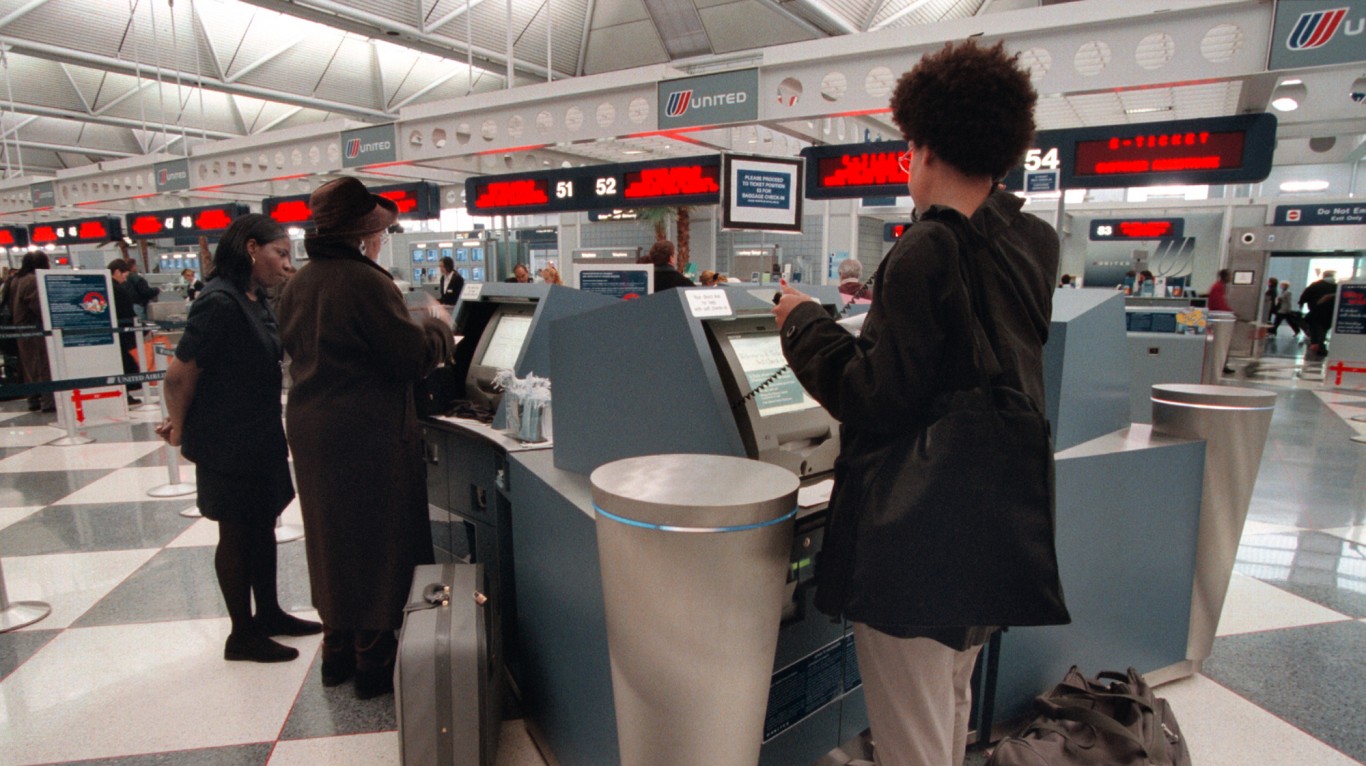
2000: First in-flight wifi
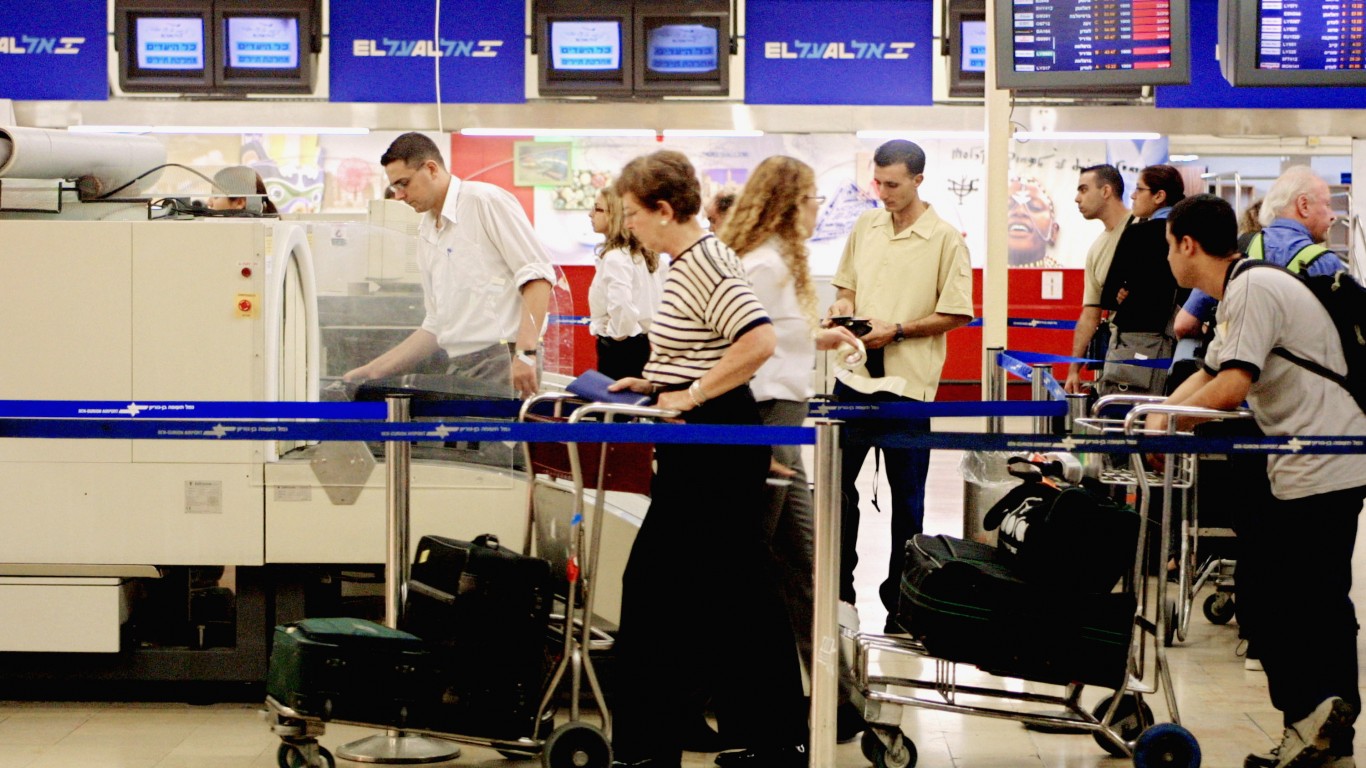
2001: Transportation Security Administration (TSA) formed
[in-text-ad-2]
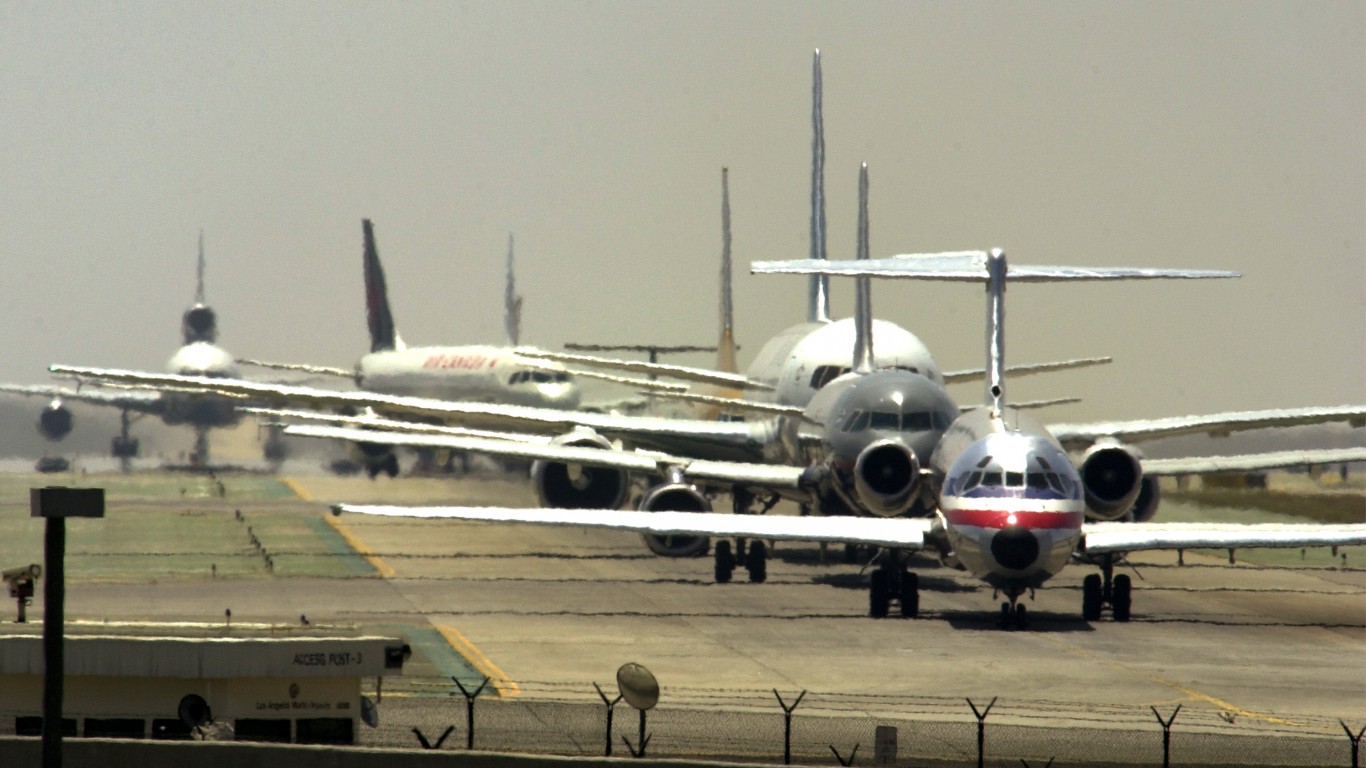
2001: Food service stops on most major airlines
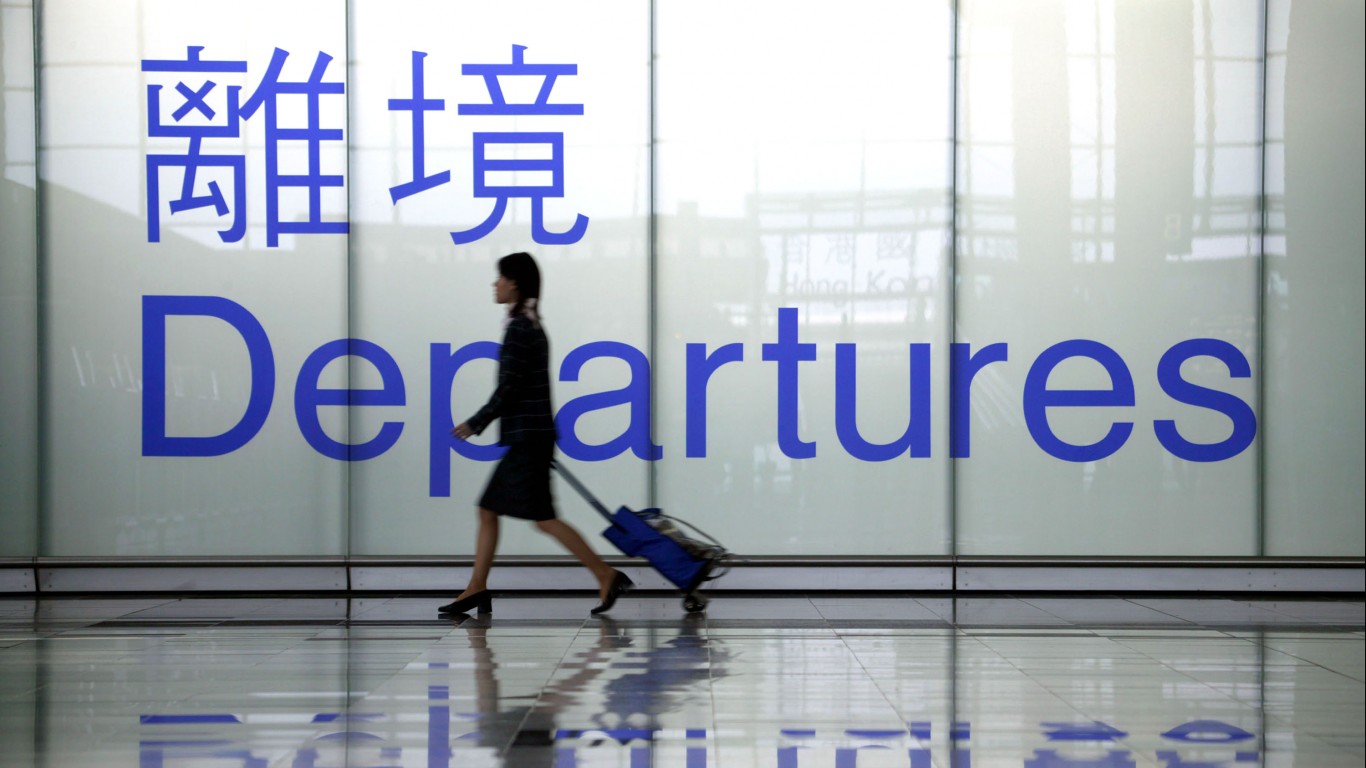
2003: Reinforced cockpit doors installed on major U.S. airlines
[in-text-ad]
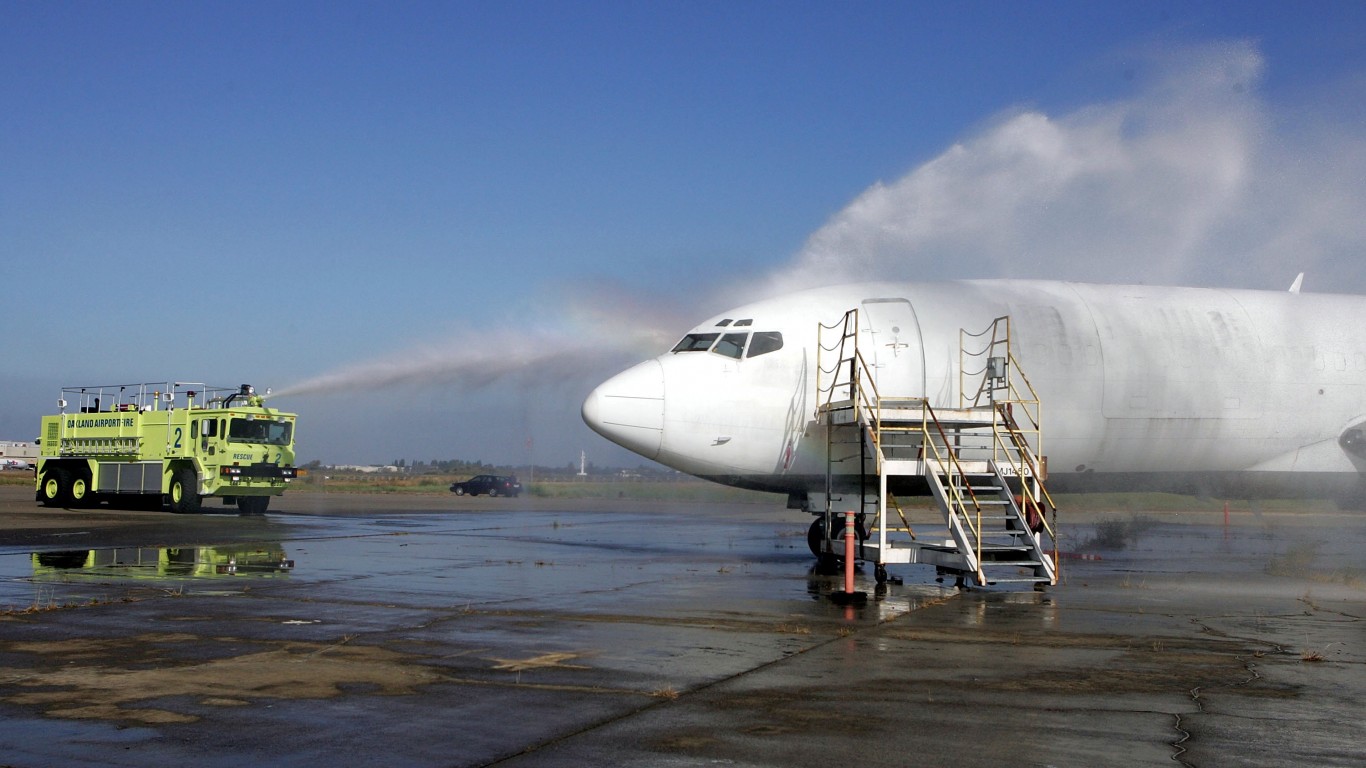
2005: Superjumbo jets introduced
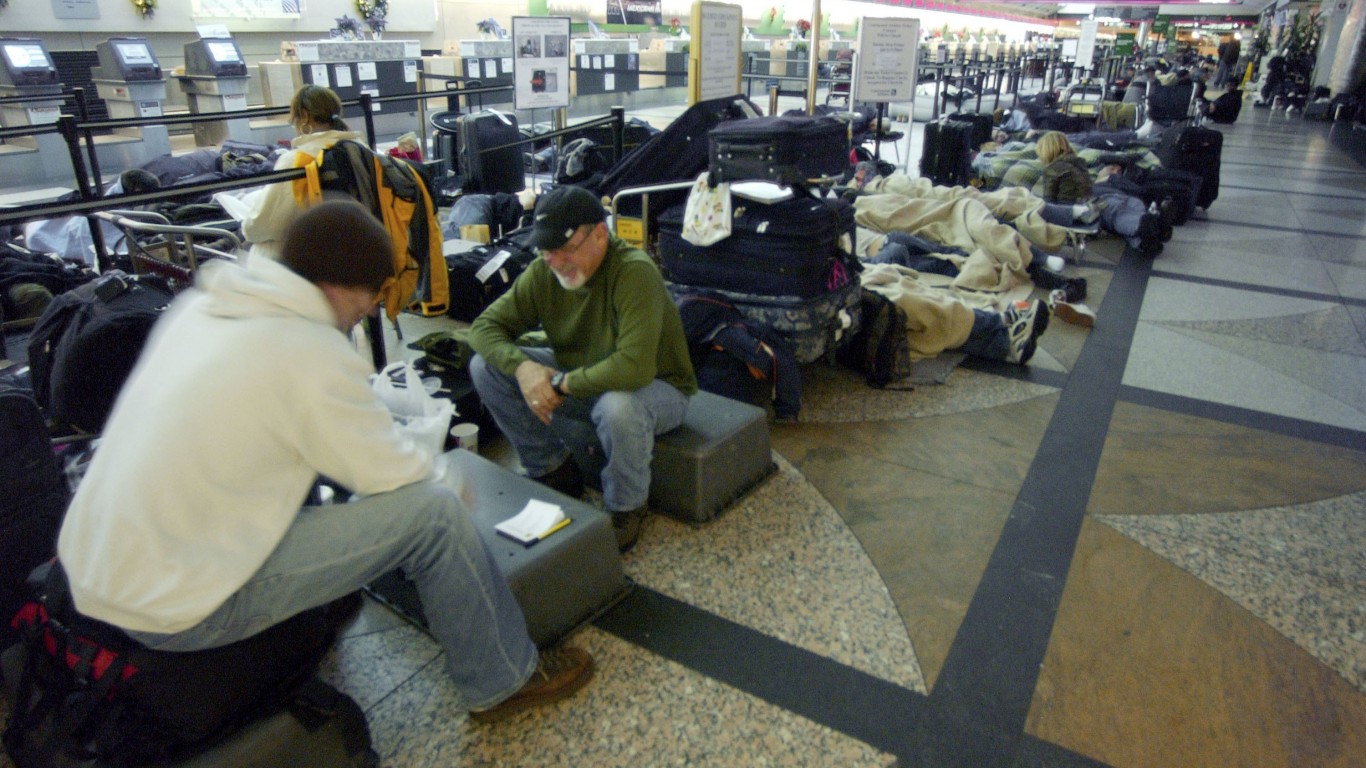
2006: Limits on carry-on liquids introduced
2007: Smartphone boarding passes accepted for first time
[in-text-ad-2]
2008: Checked baggage charges introduced
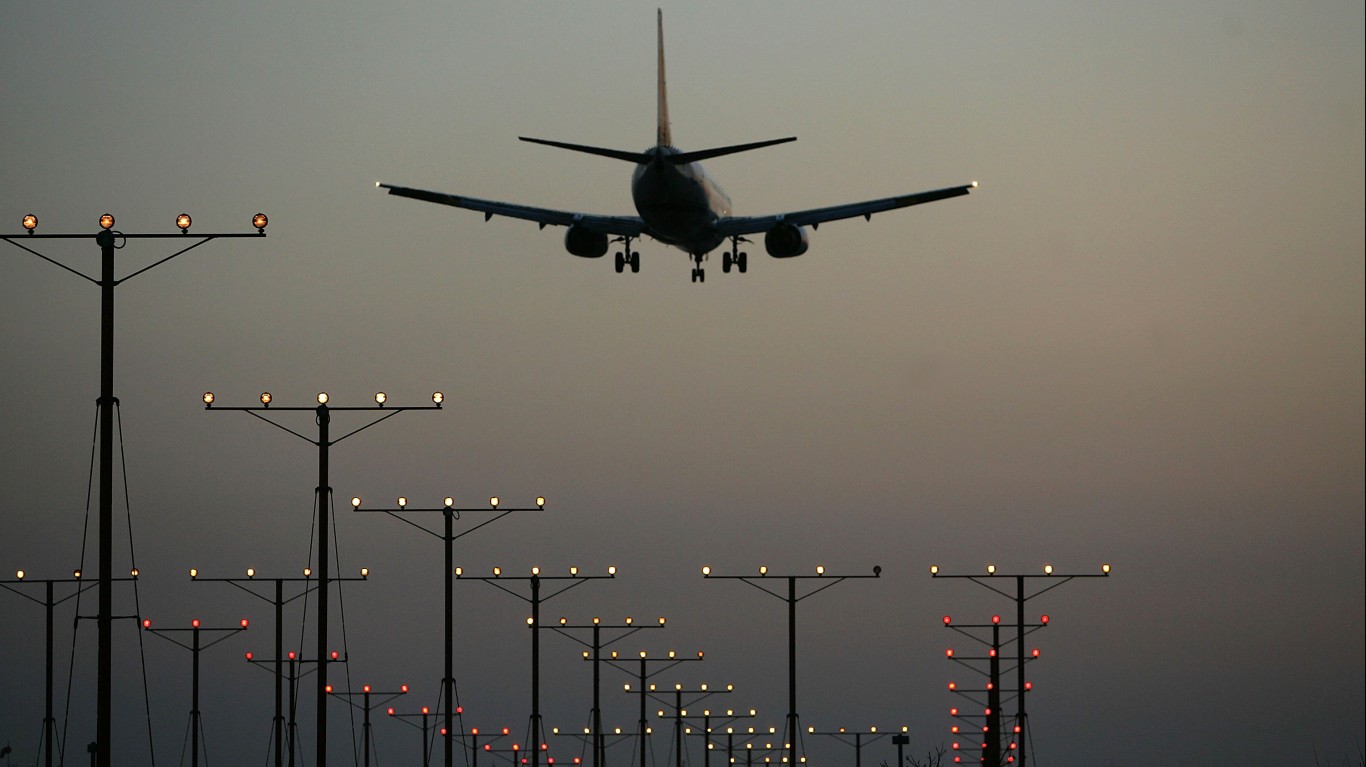
2008: Global Entry begins at some airports
[in-text-ad]
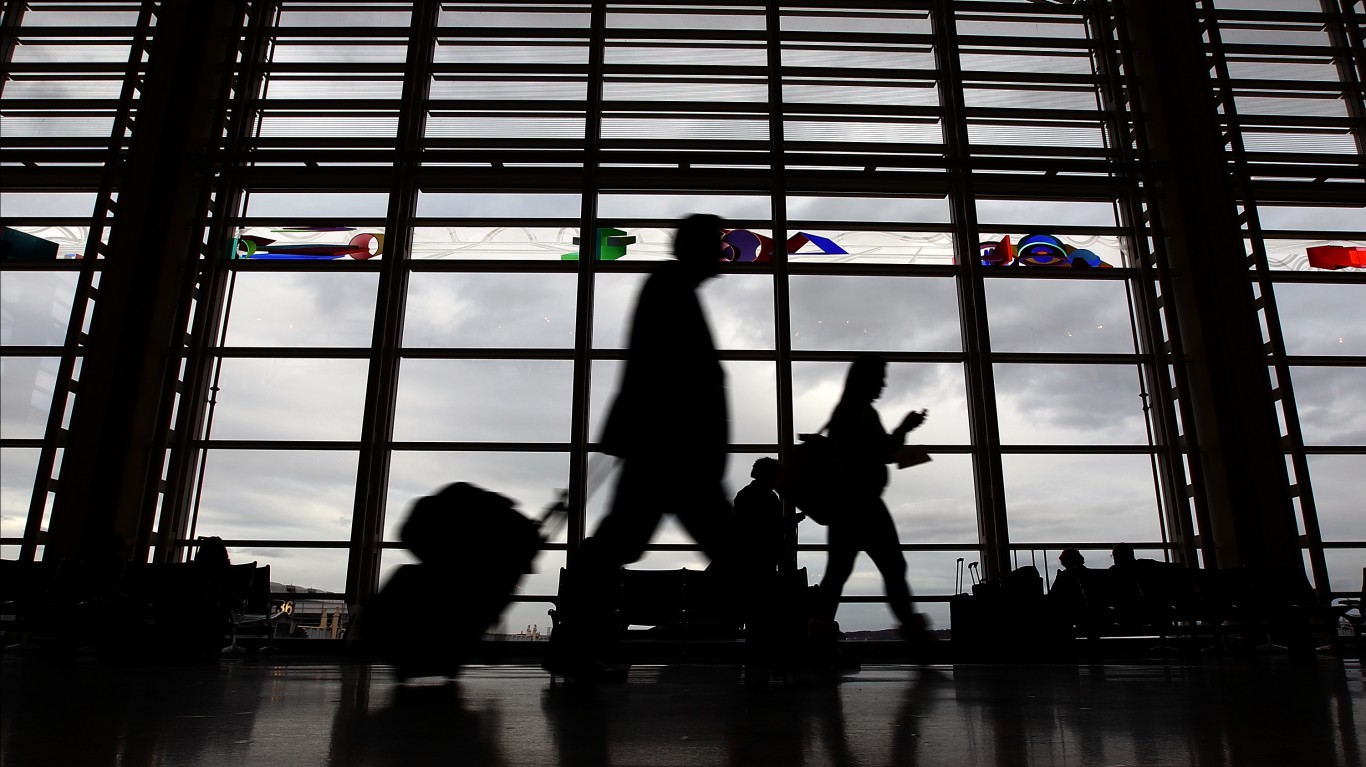
2011: TSA PreCheck introduced
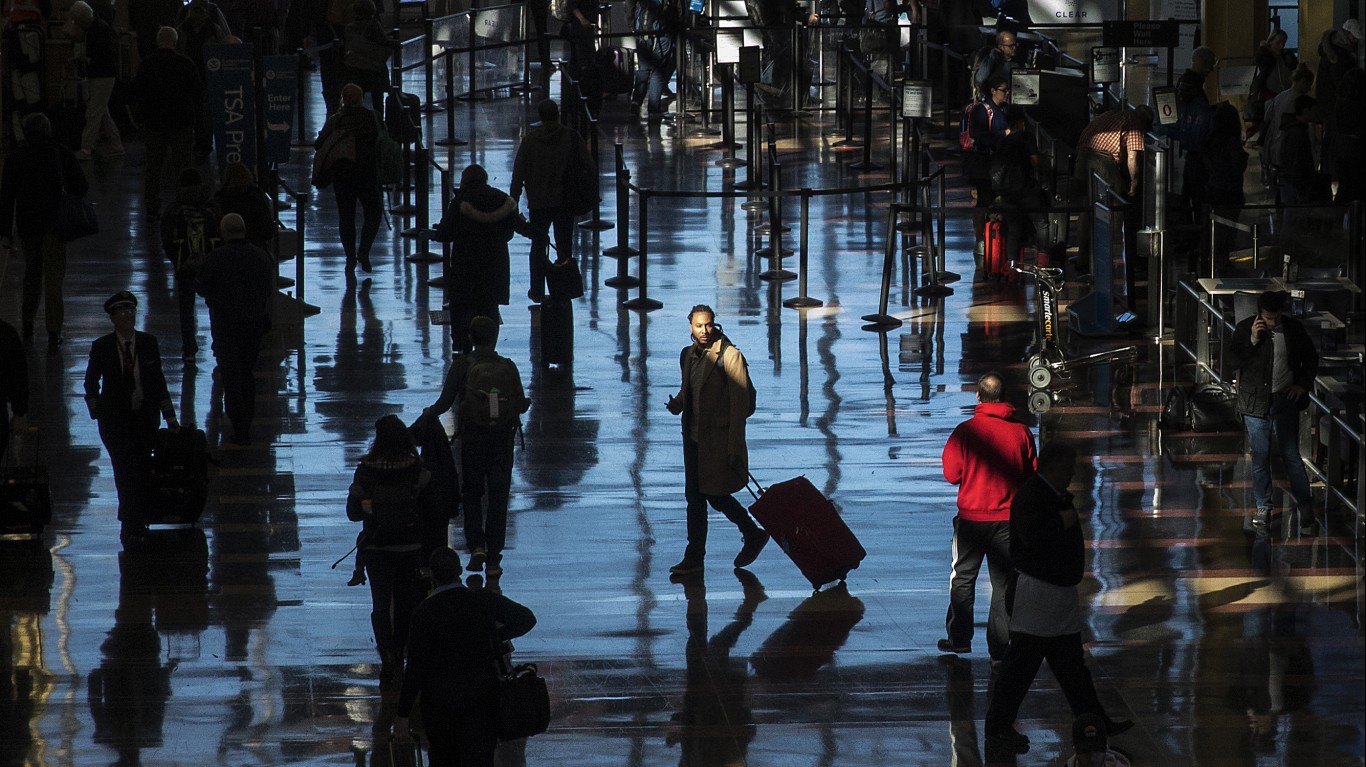
2018: Airlines begin charging for seat assignments
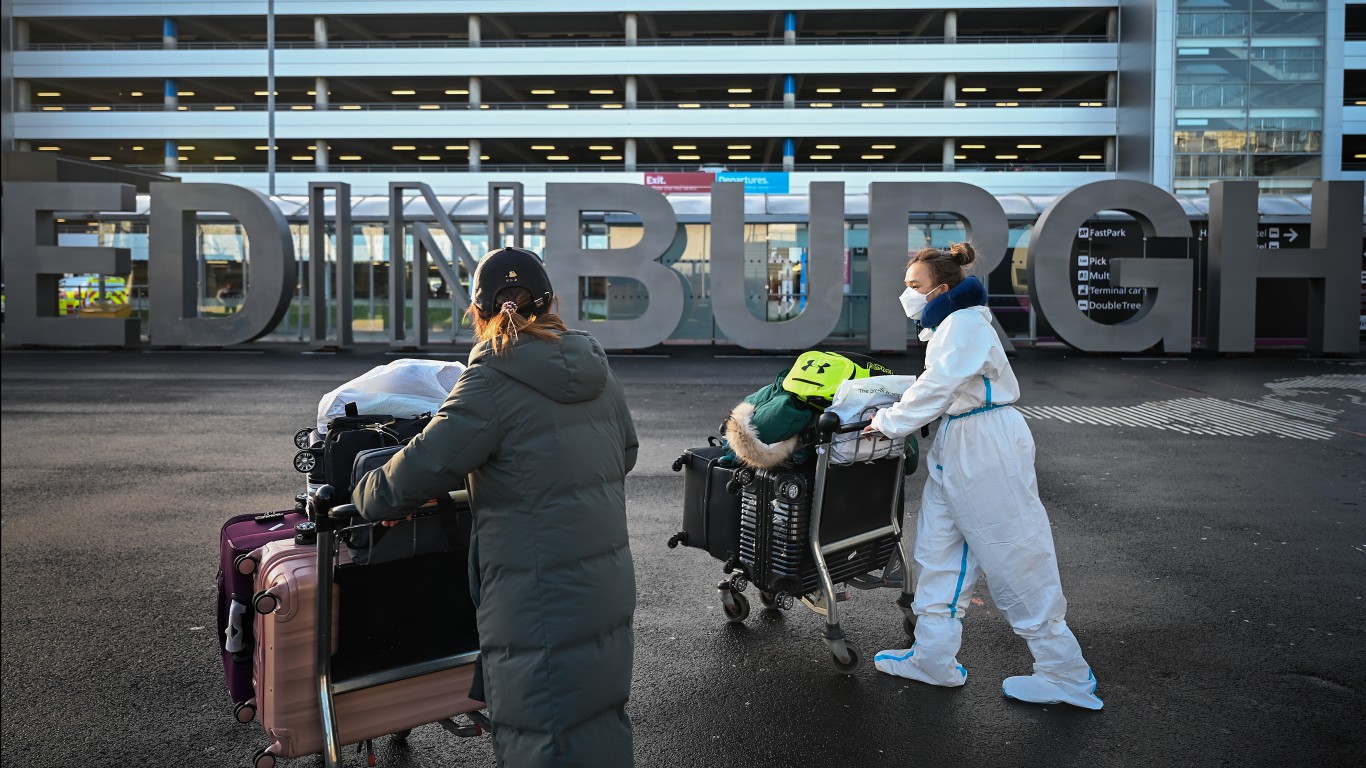
2021: U.S. requires passengers and crews to wear masks
Are You Ahead, or Behind on Retirement? (sponsor)
If you’re one of the over 4 Million Americans set to retire this year, you may want to pay attention.
Finding a financial advisor who puts your interest first can be the difference between a rich retirement and barely getting by, and today it’s easier than ever. SmartAsset’s free tool matches you with up to three fiduciary financial advisors that serve your area in minutes. Each advisor has been carefully vetted, and must act in your best interests. Start your search now.
Don’t waste another minute; get started right here and help your retirement dreams become a retirement reality.
Thank you for reading! Have some feedback for us?
Contact the 24/7 Wall St. editorial team.
 24/7 Wall St.
24/7 Wall St. 24/7 Wall St.
24/7 Wall St. 24/7 Wall St.
24/7 Wall St. 24/7 Wall St.
24/7 Wall St.
